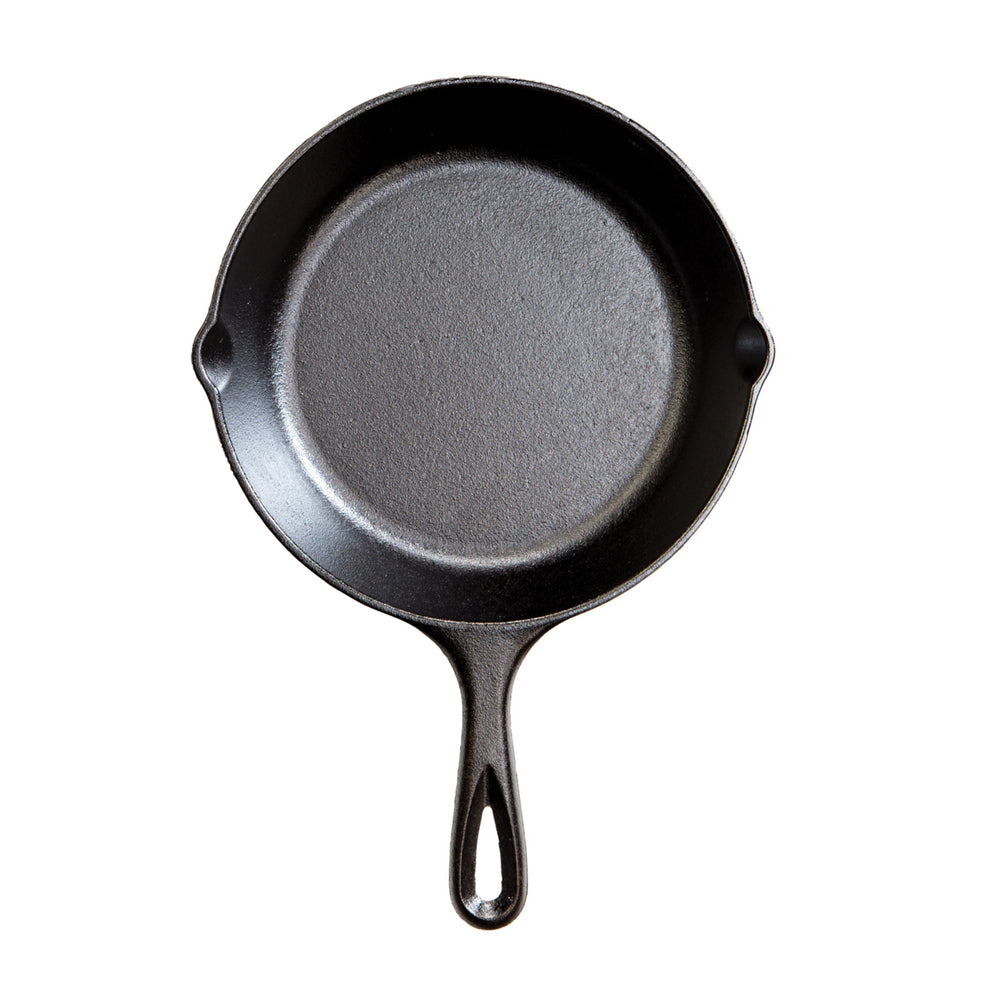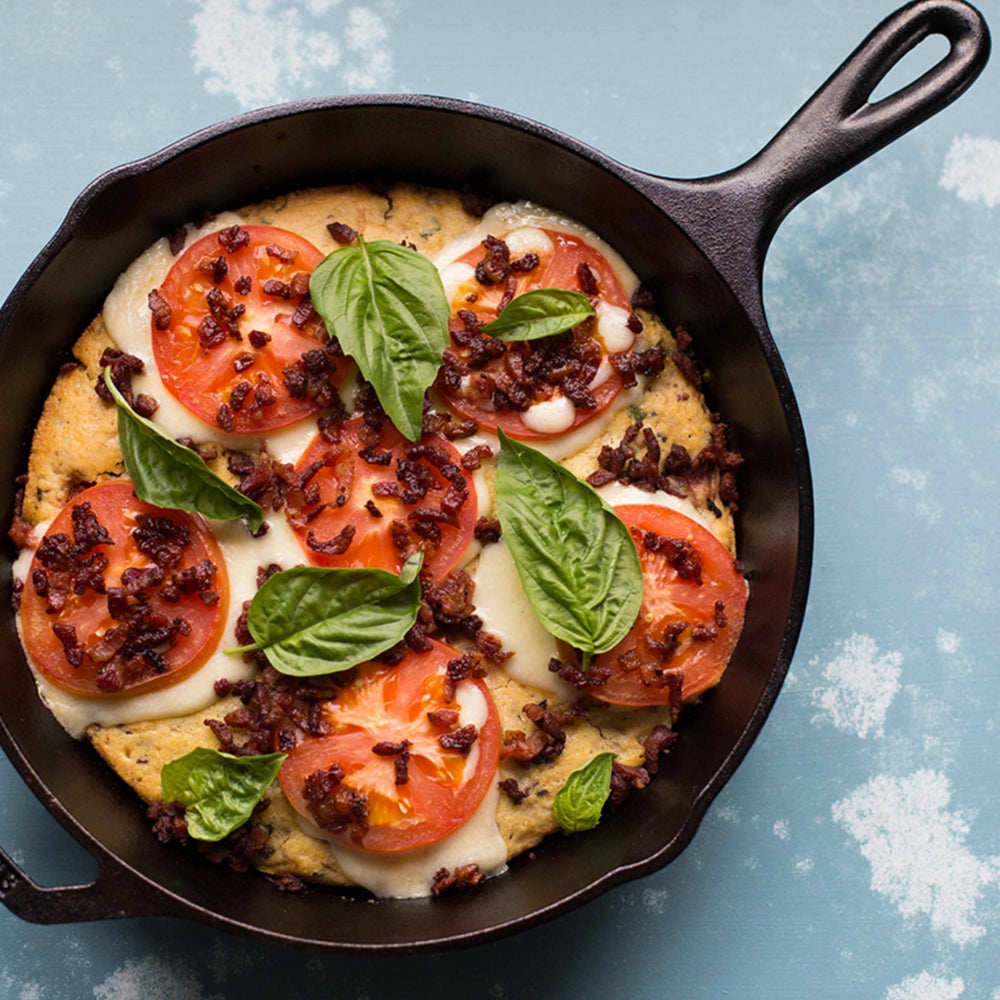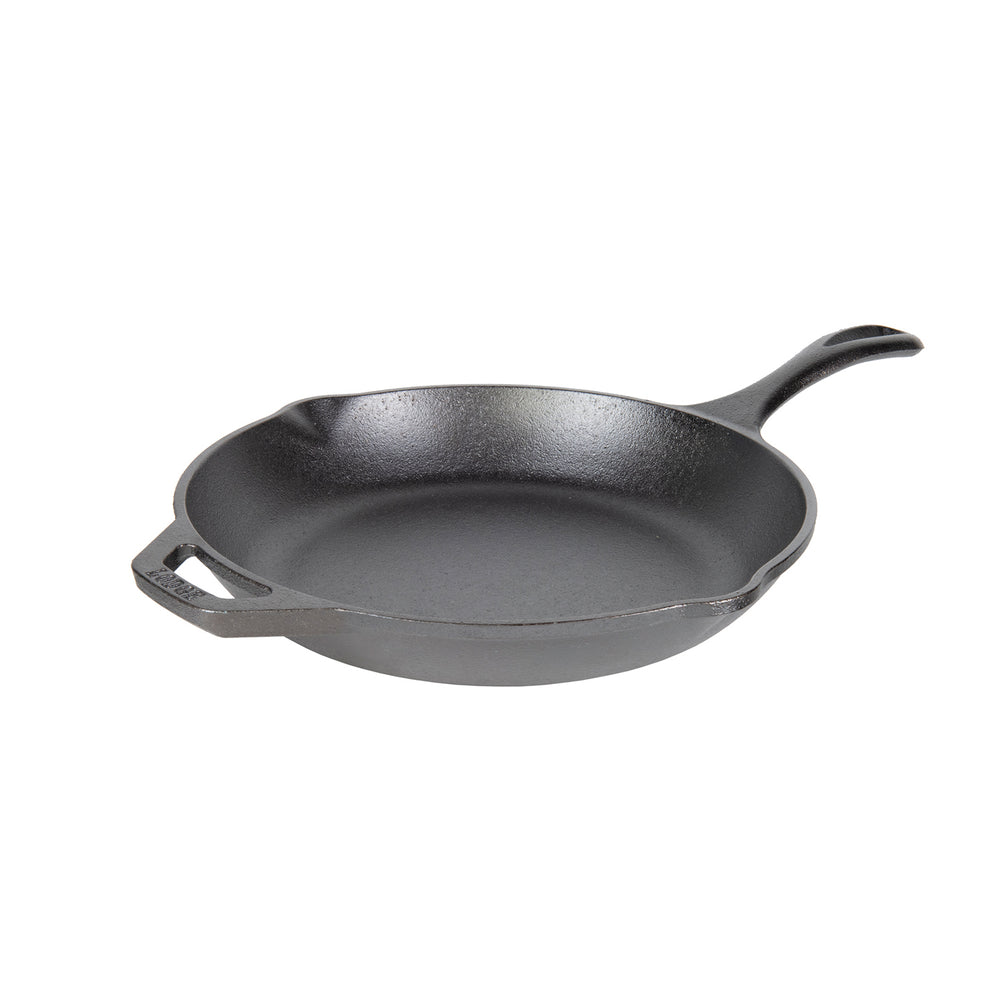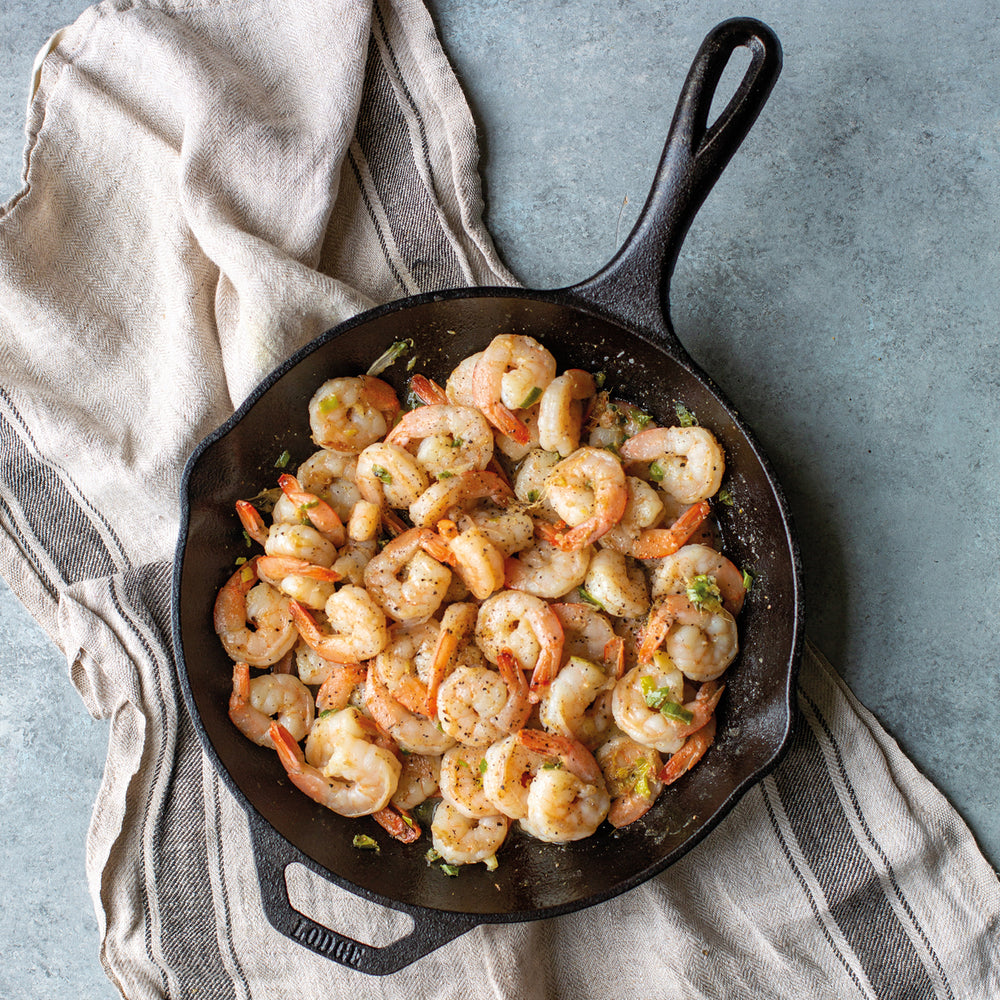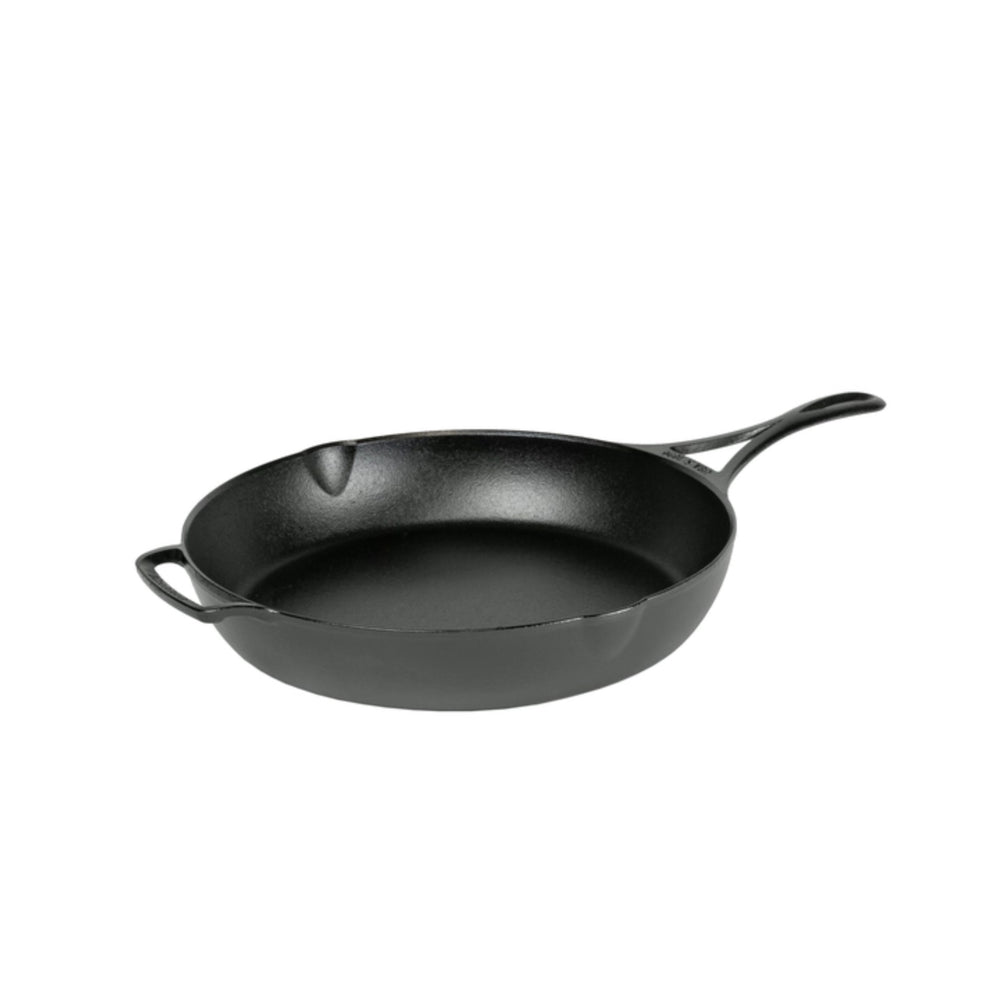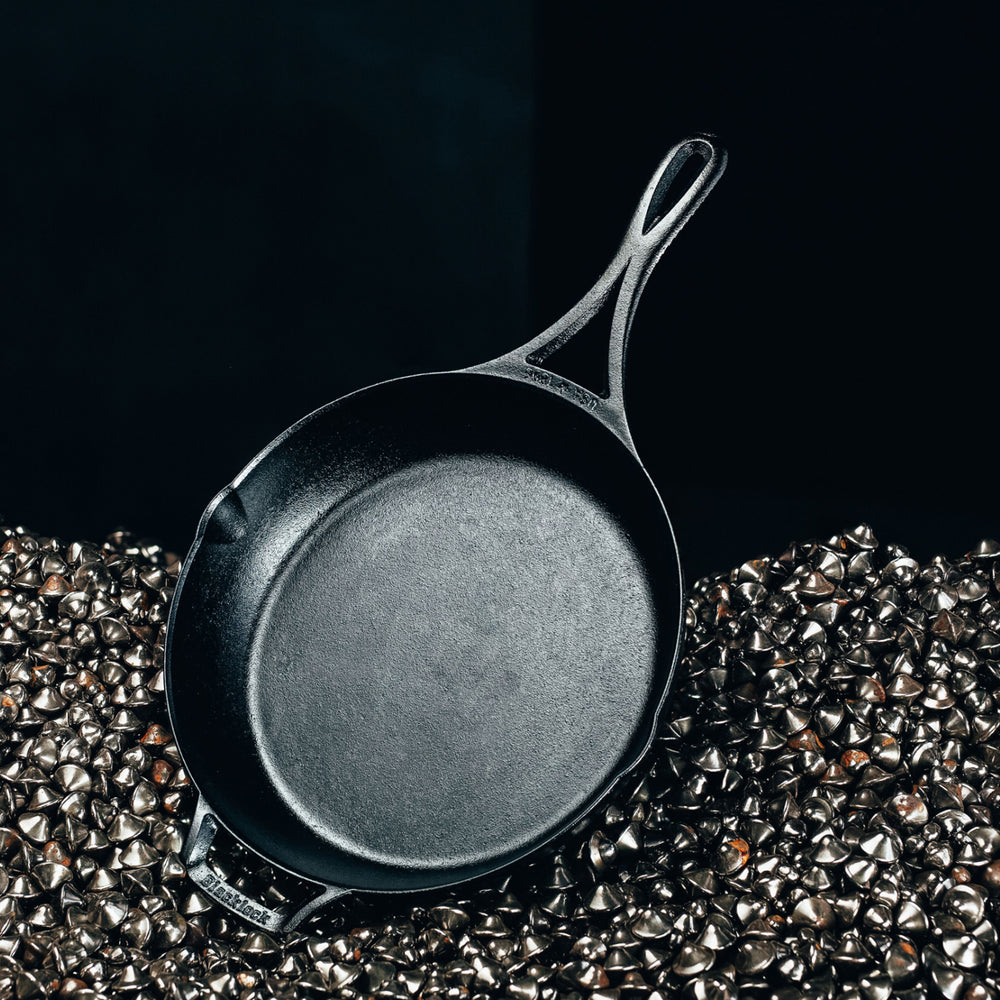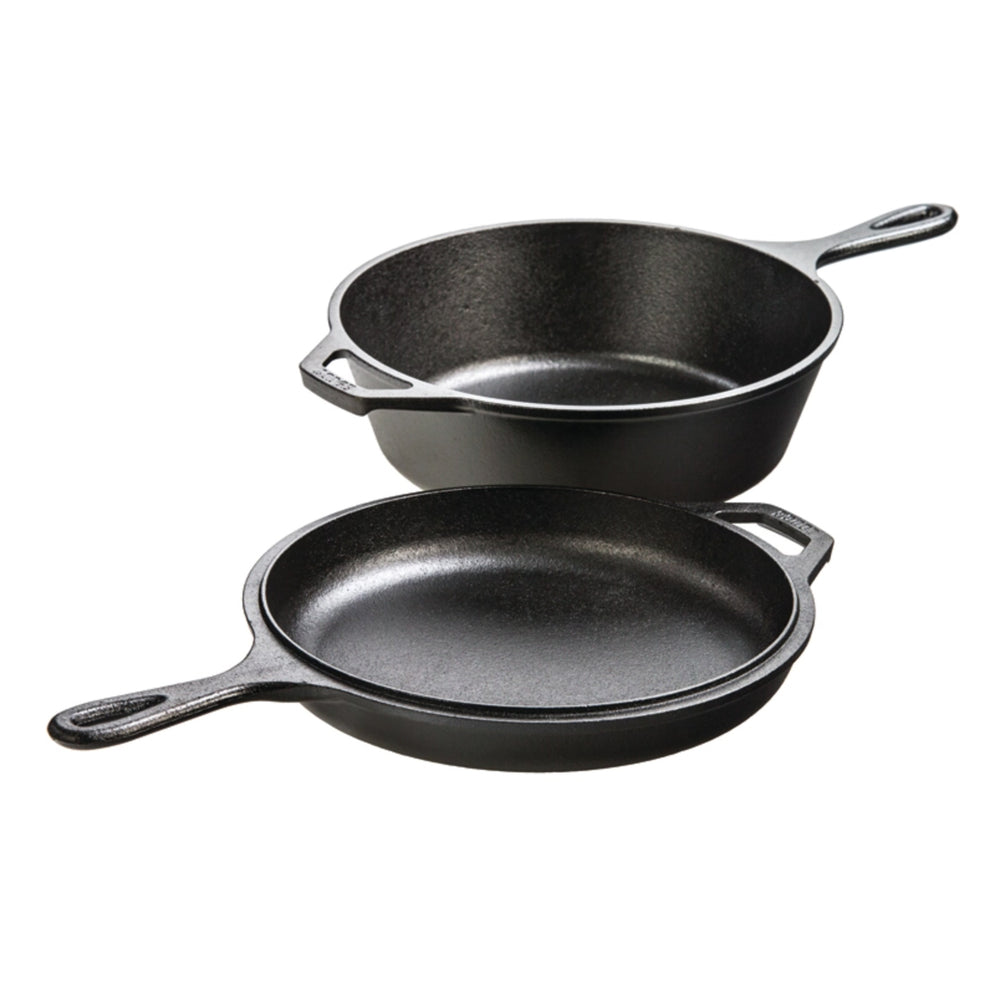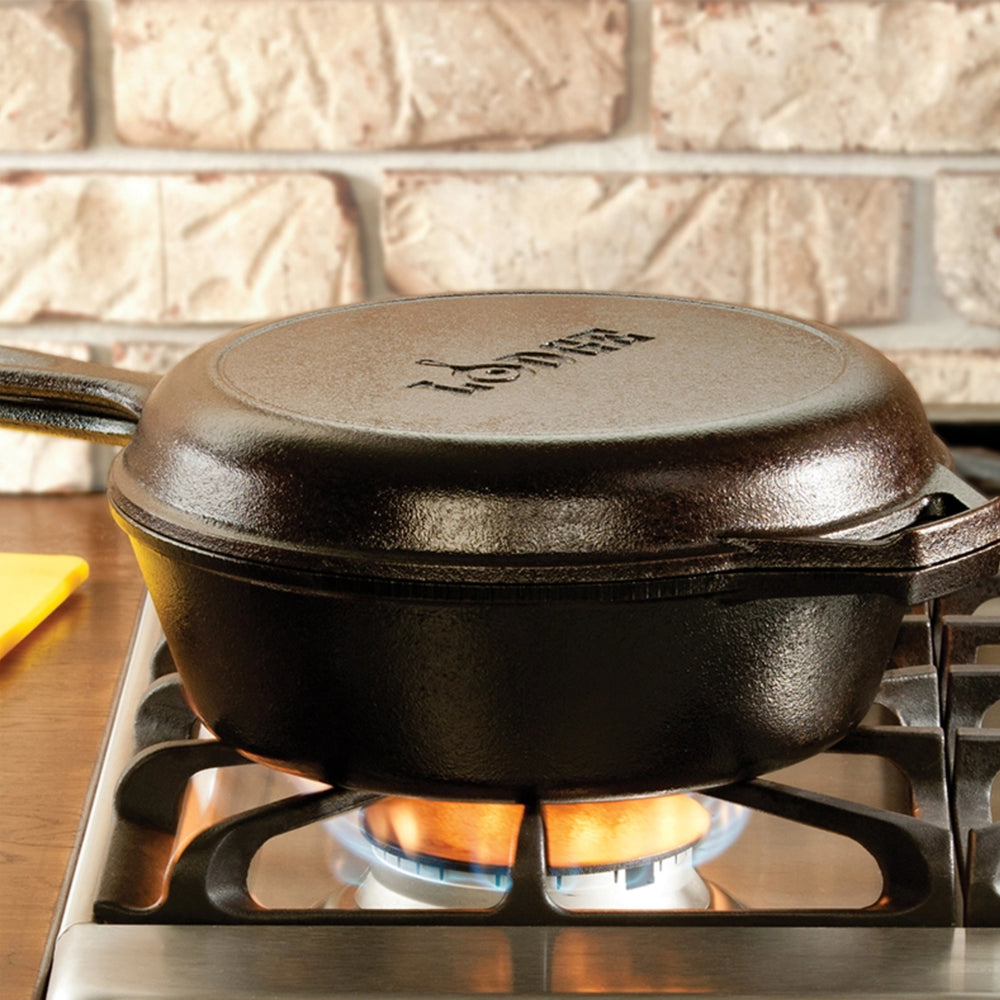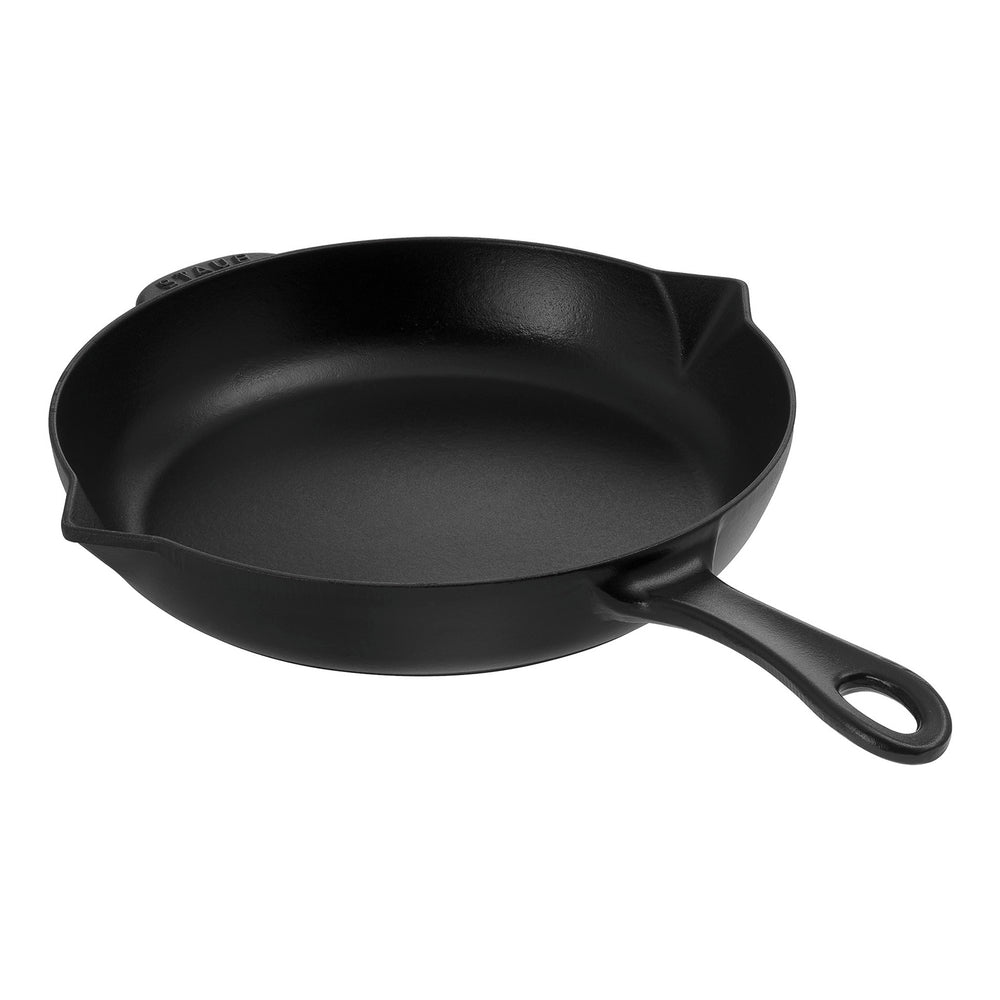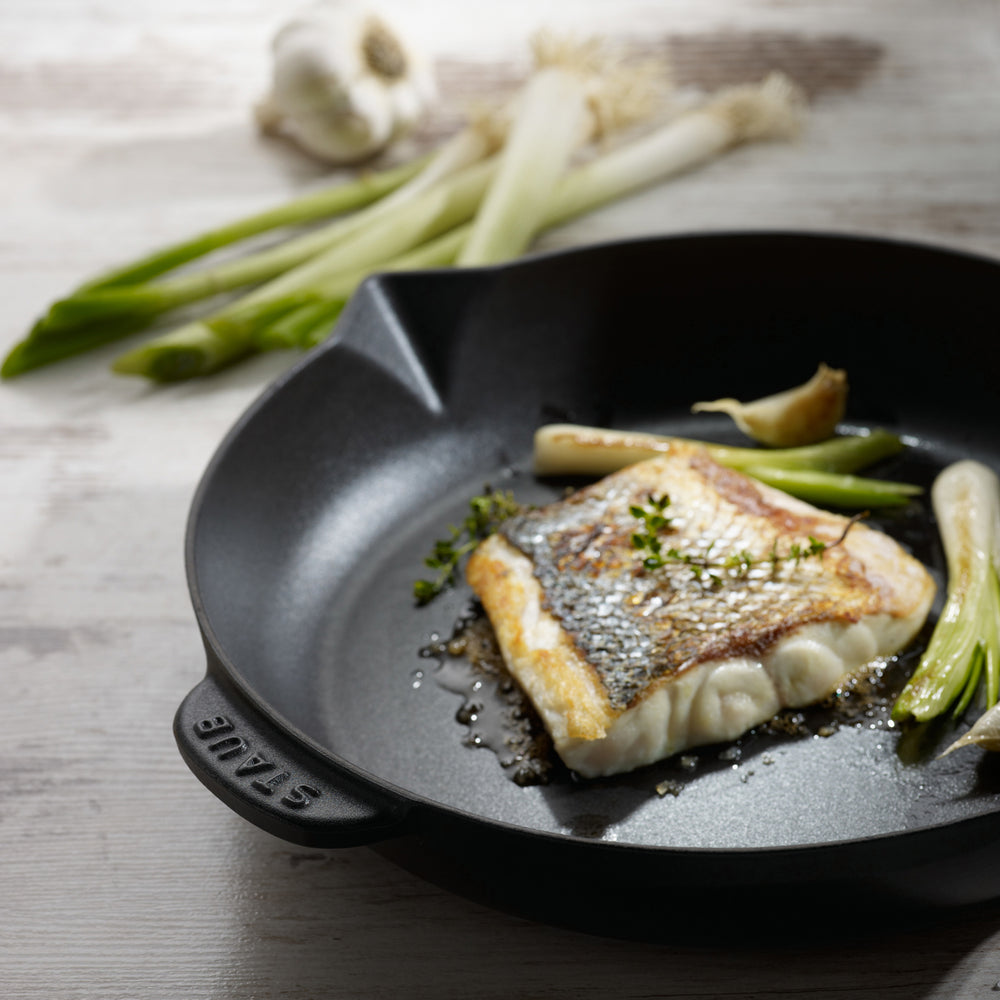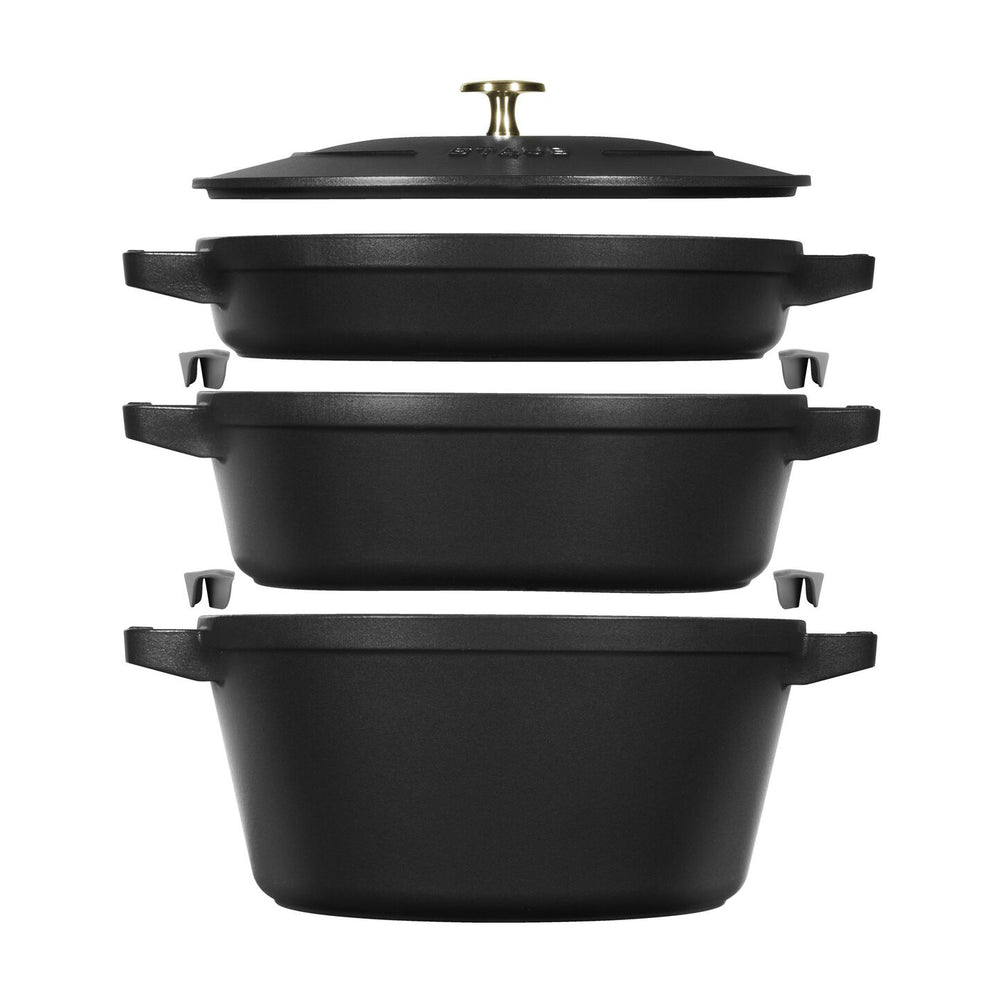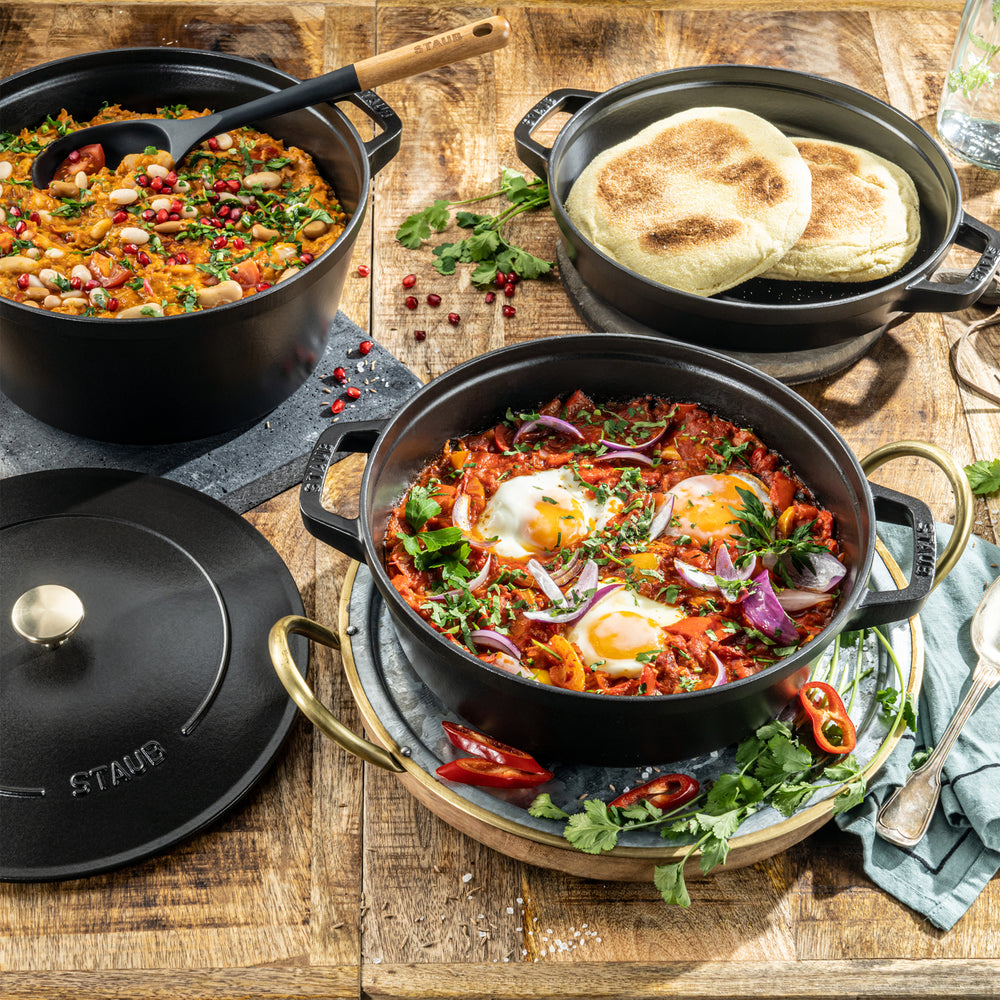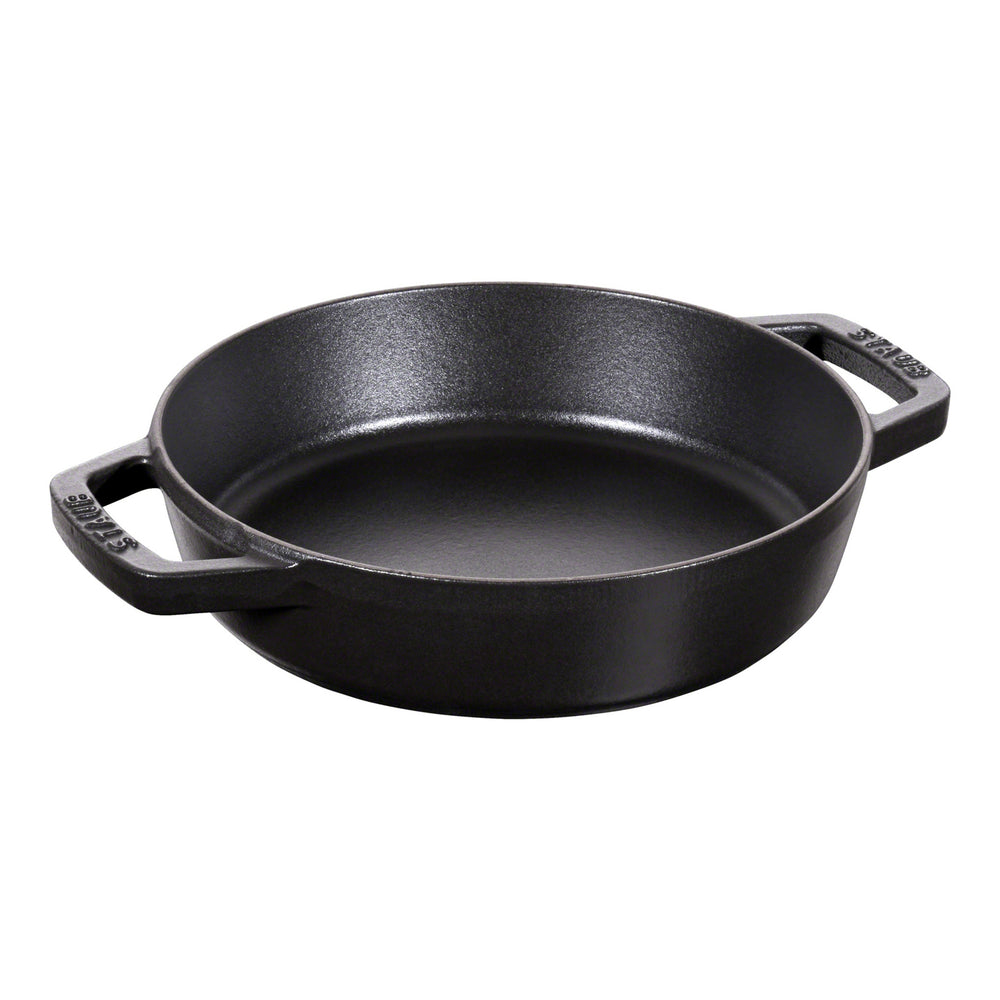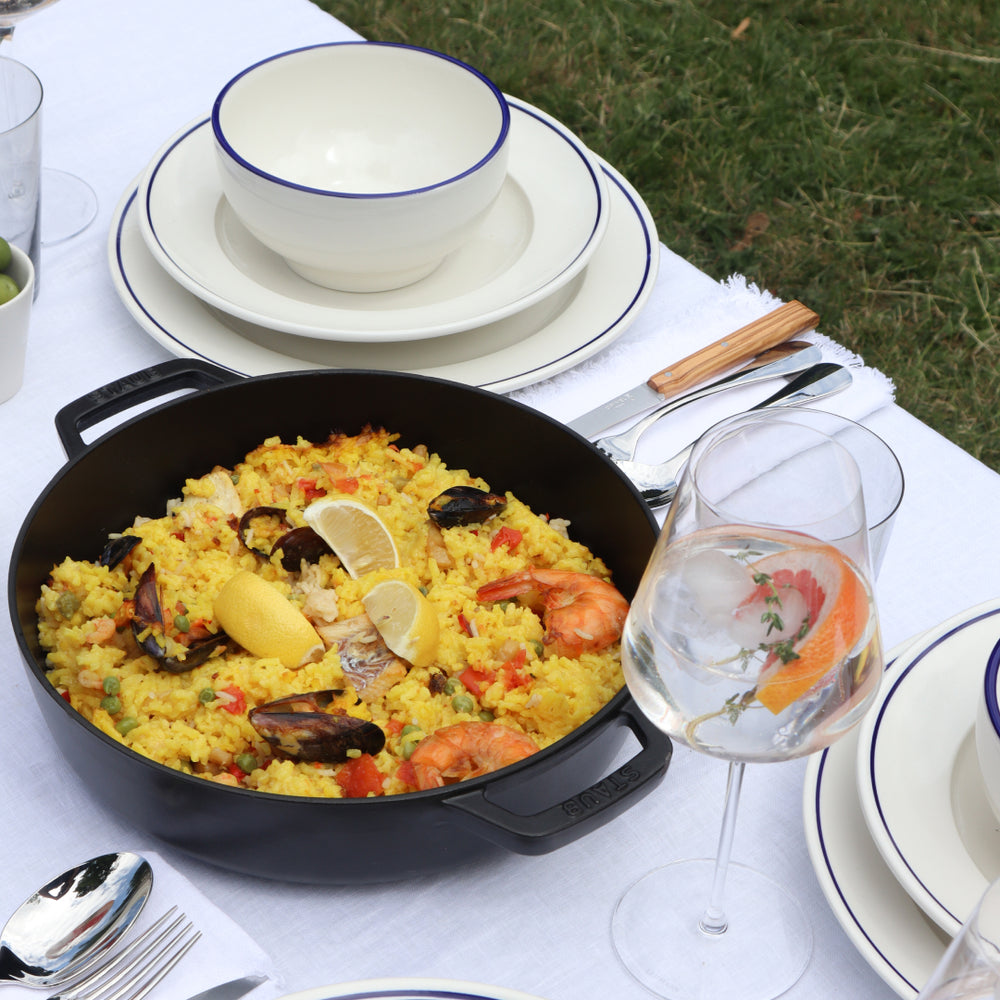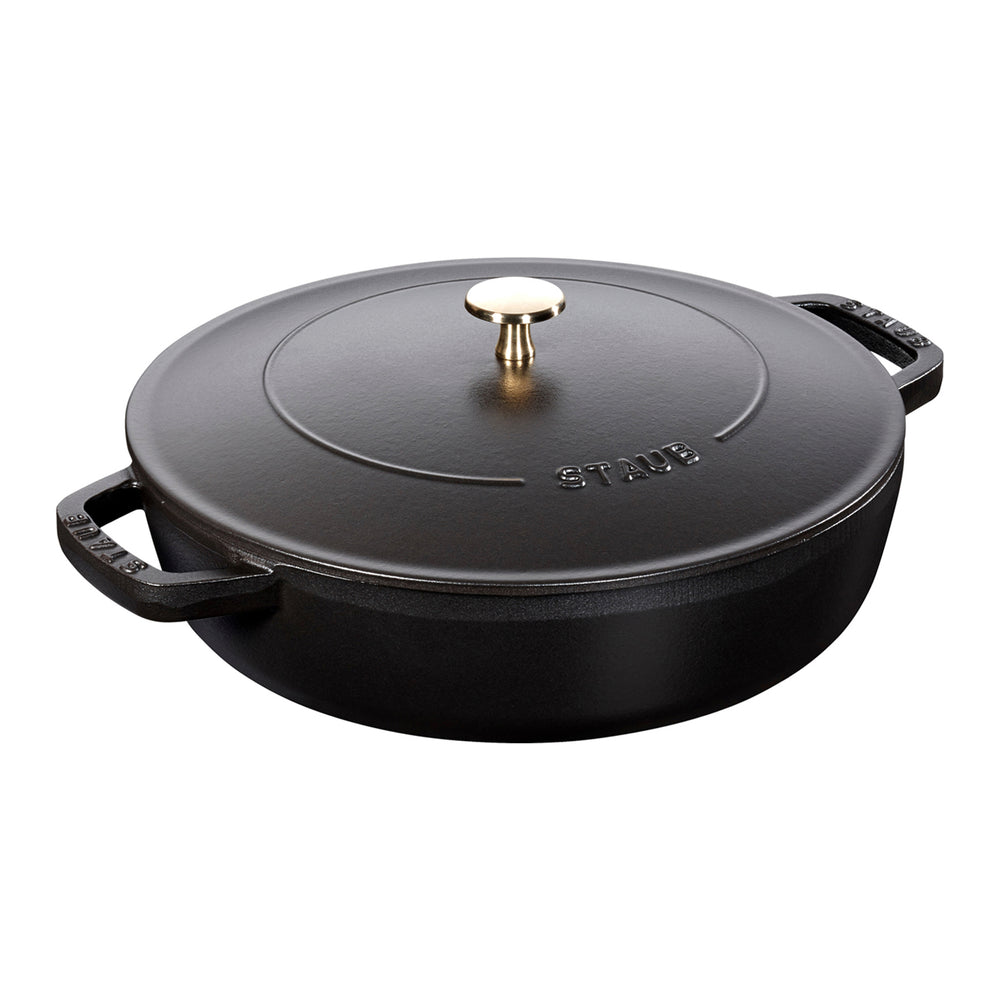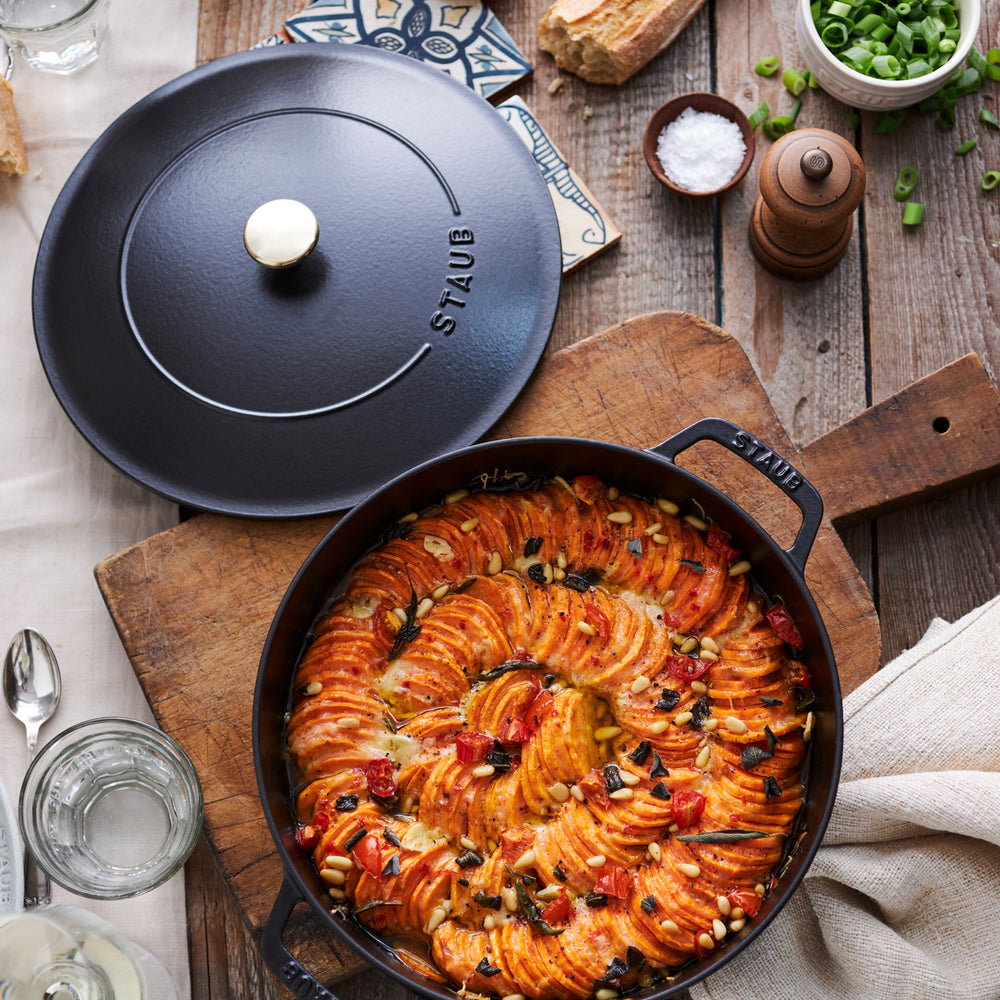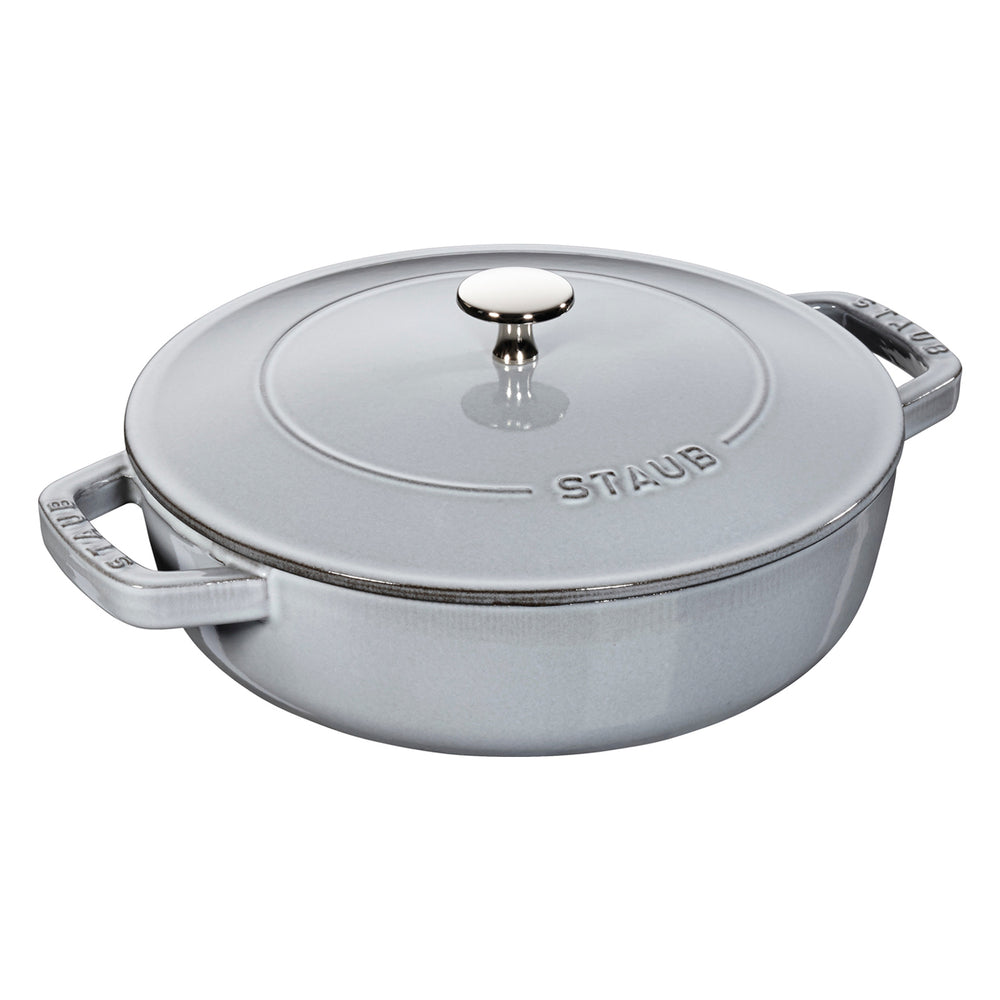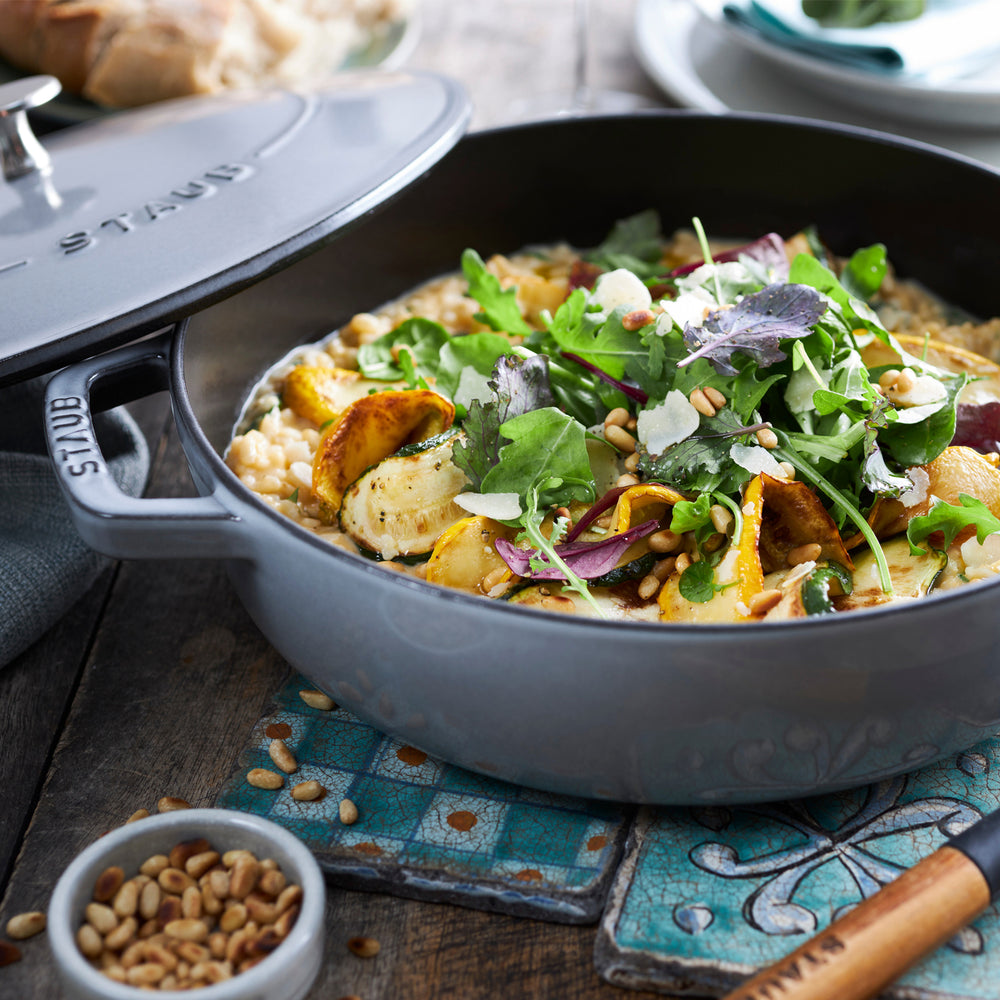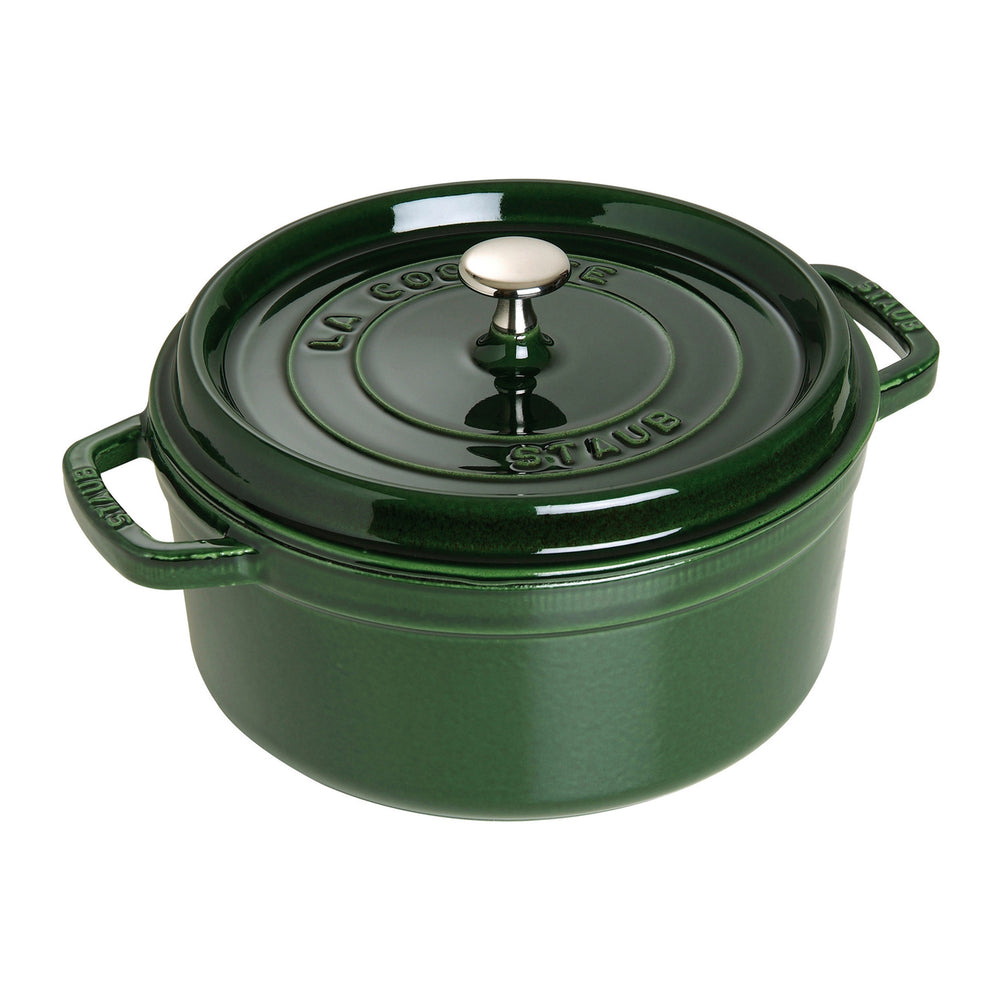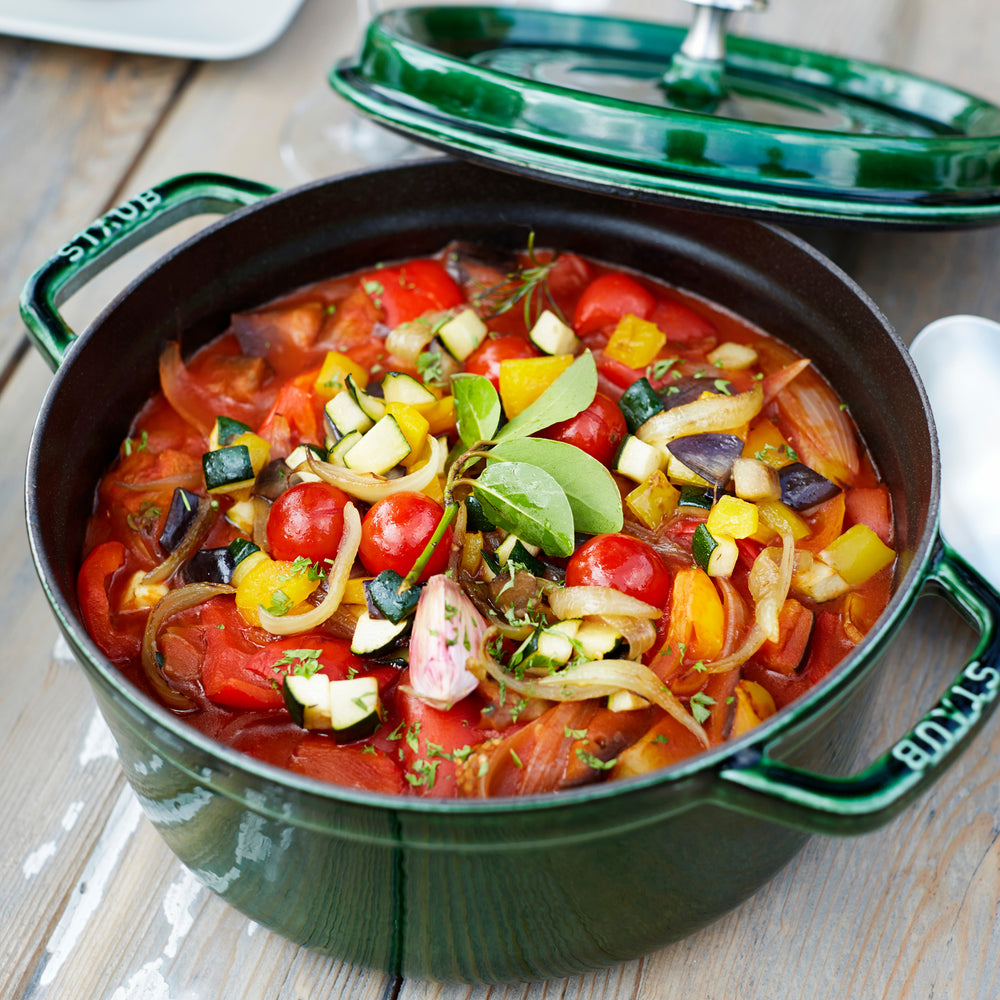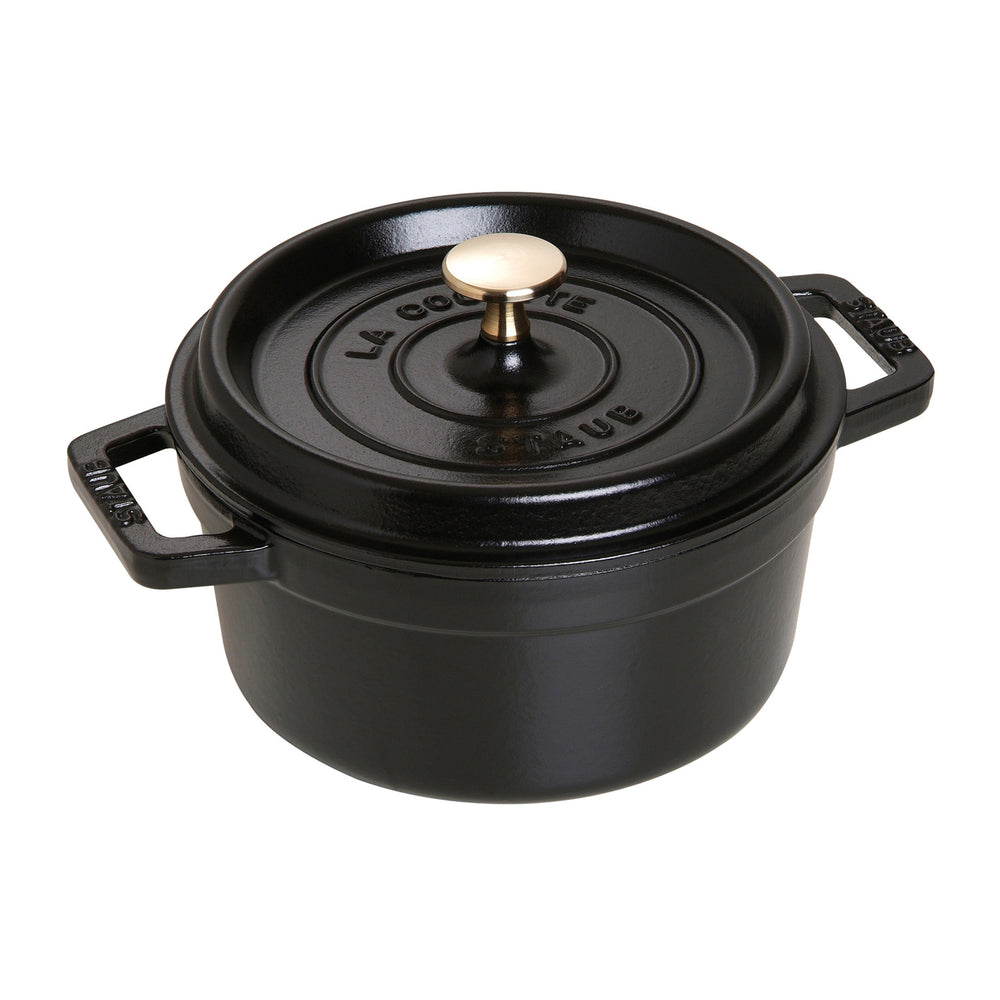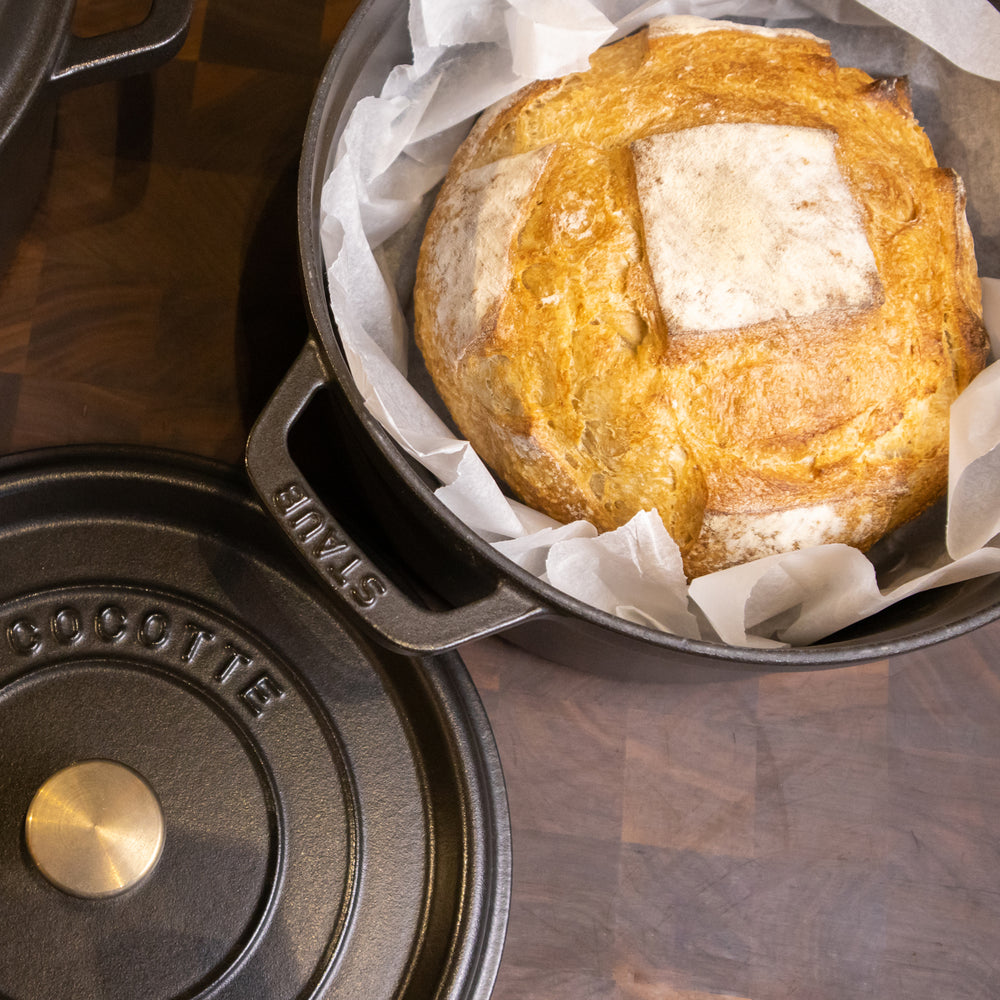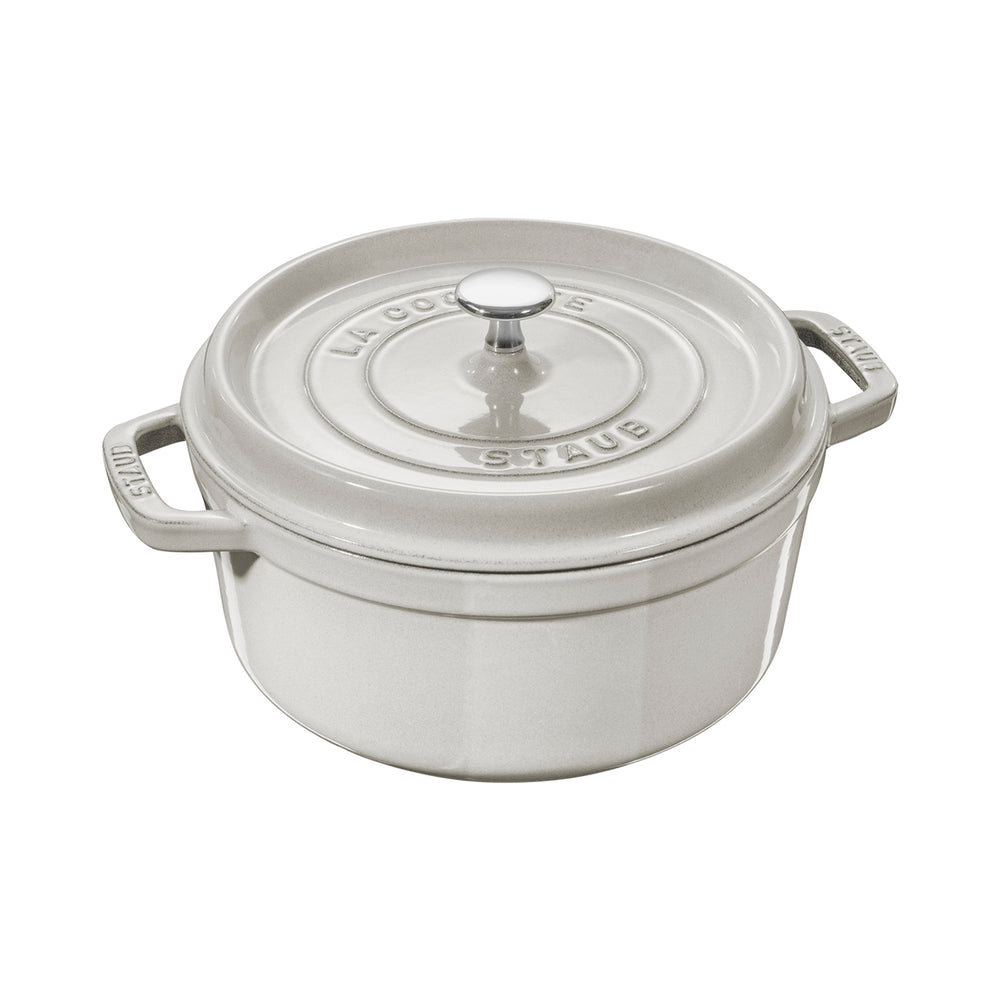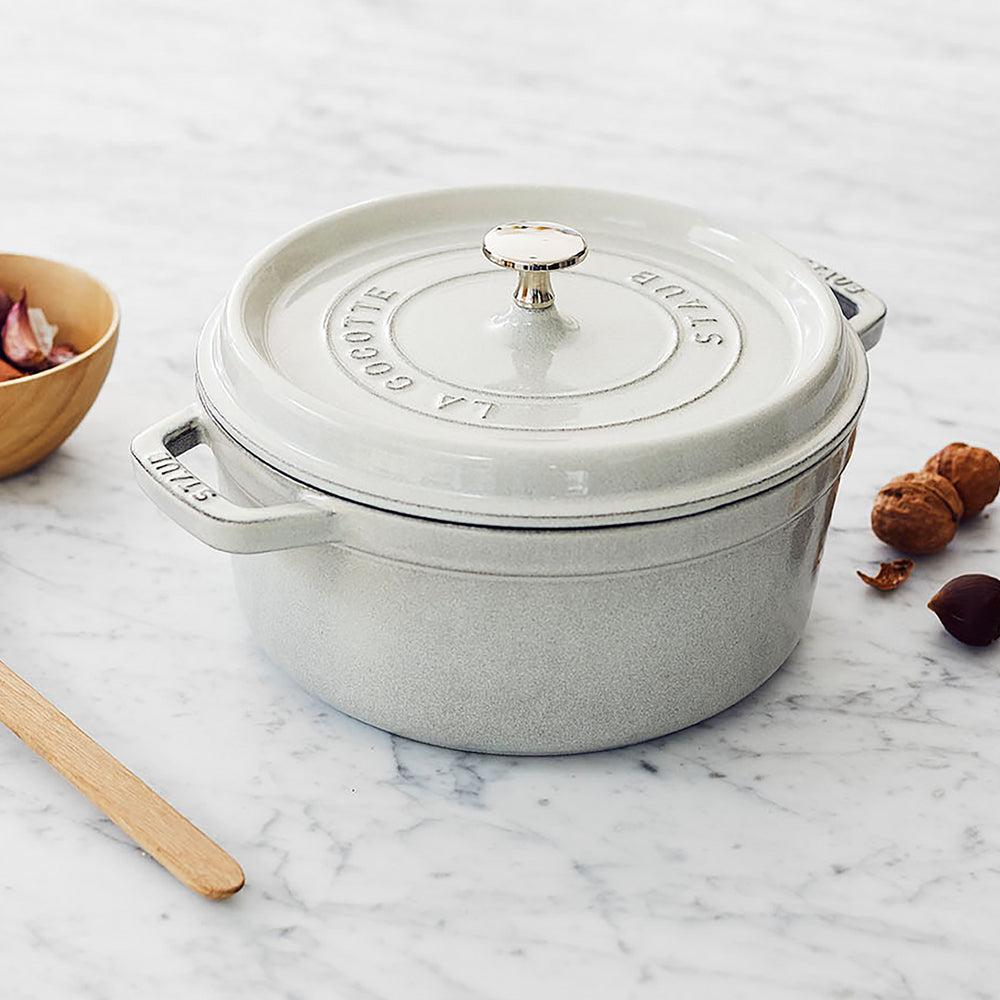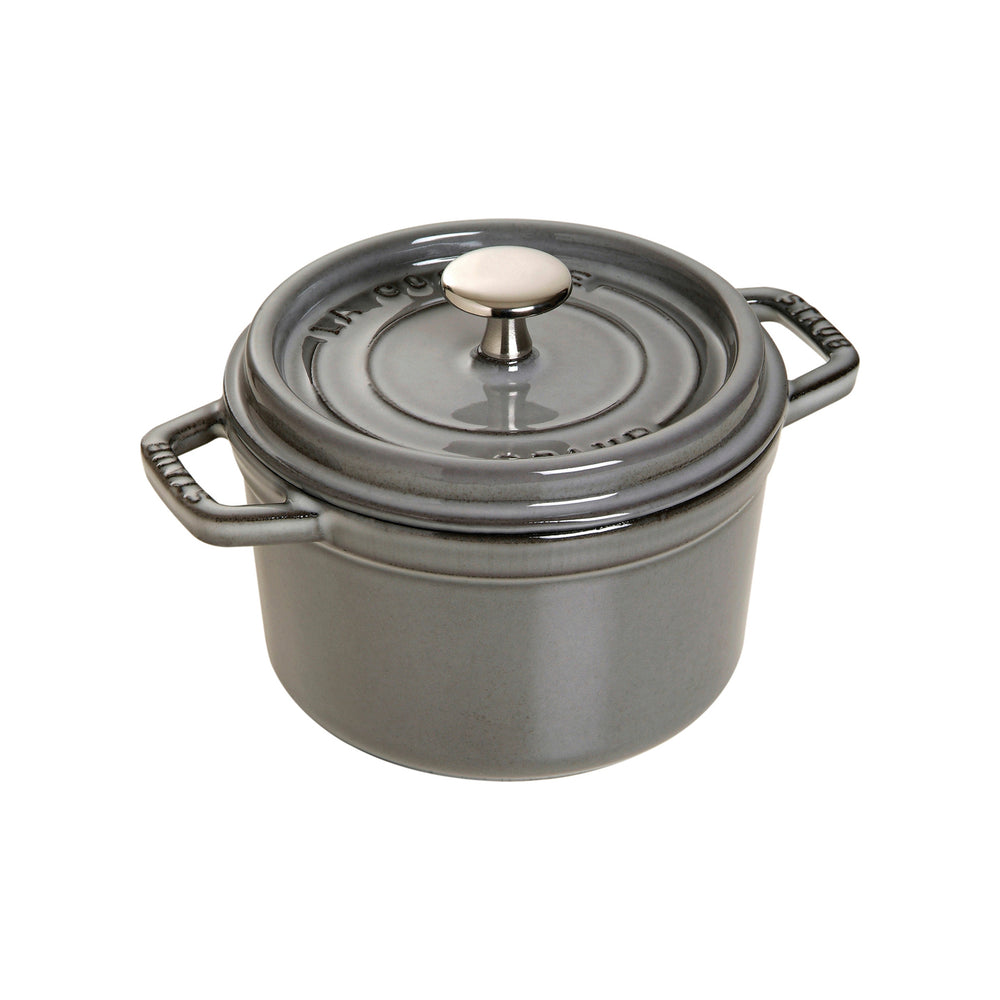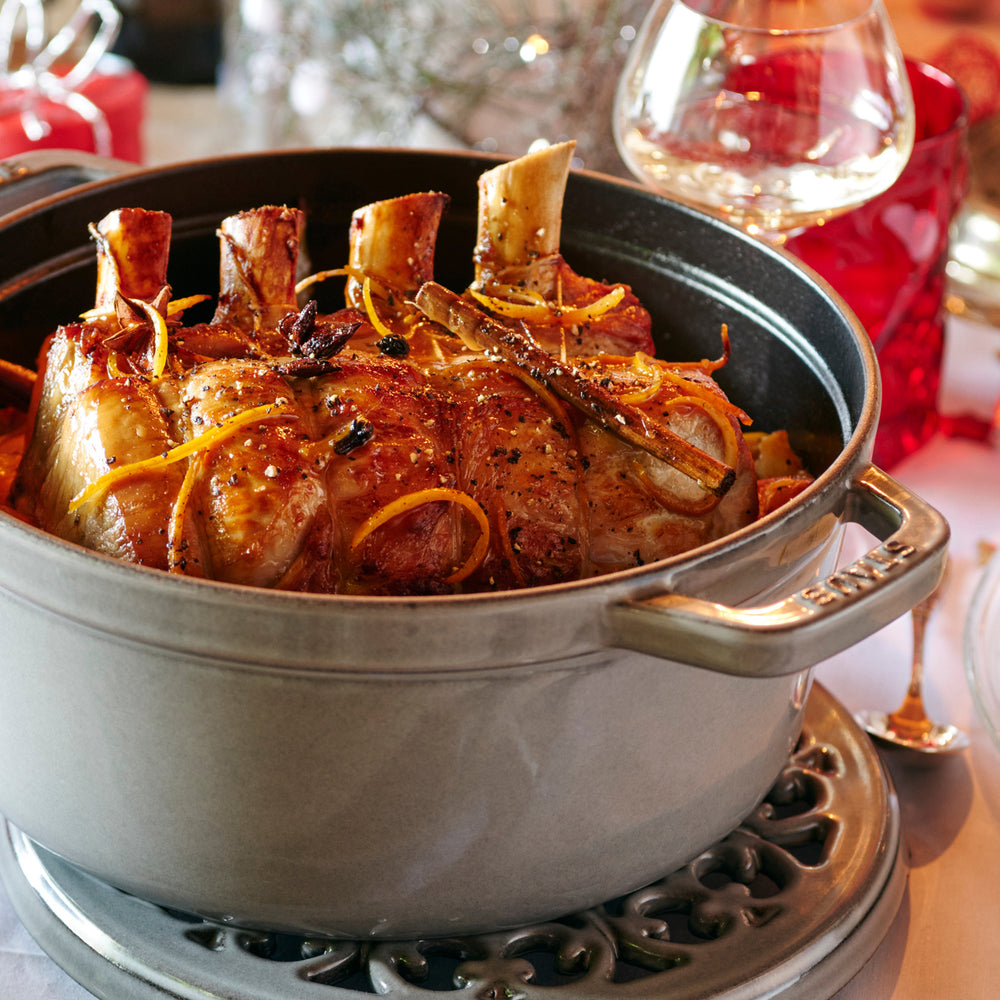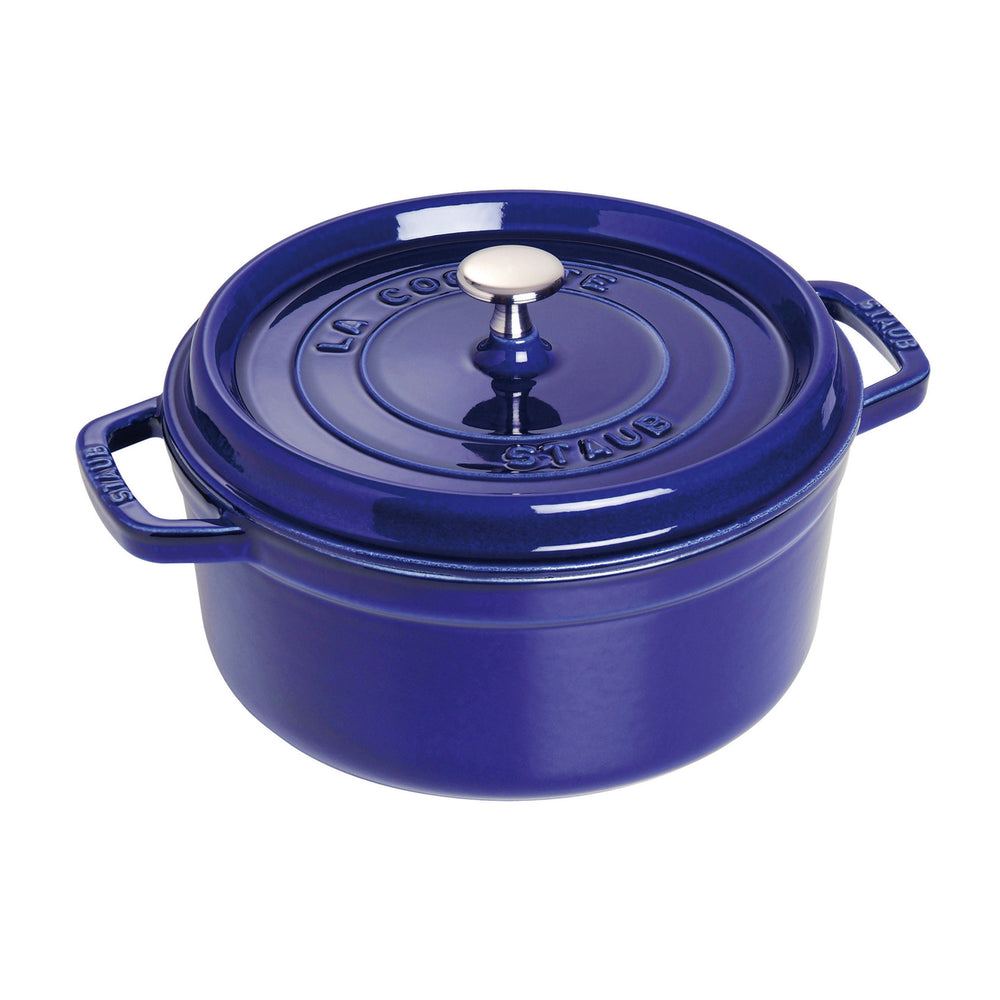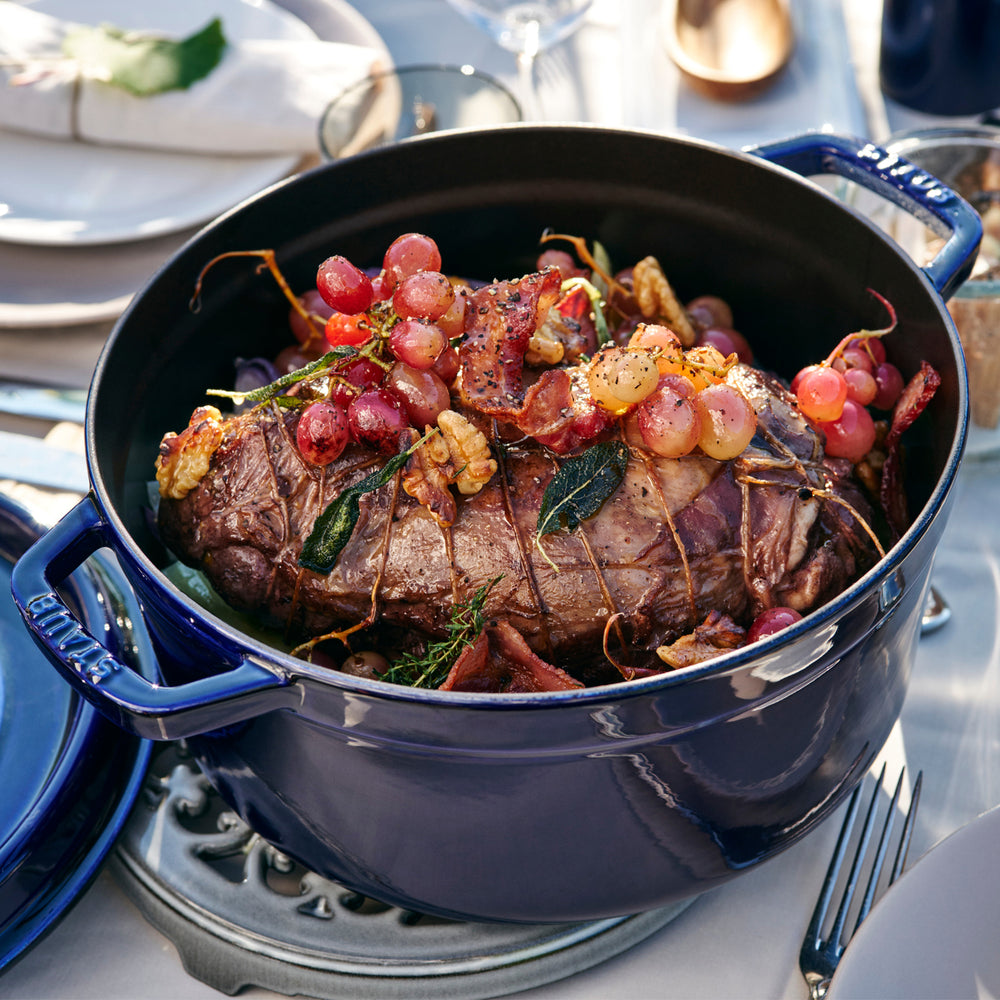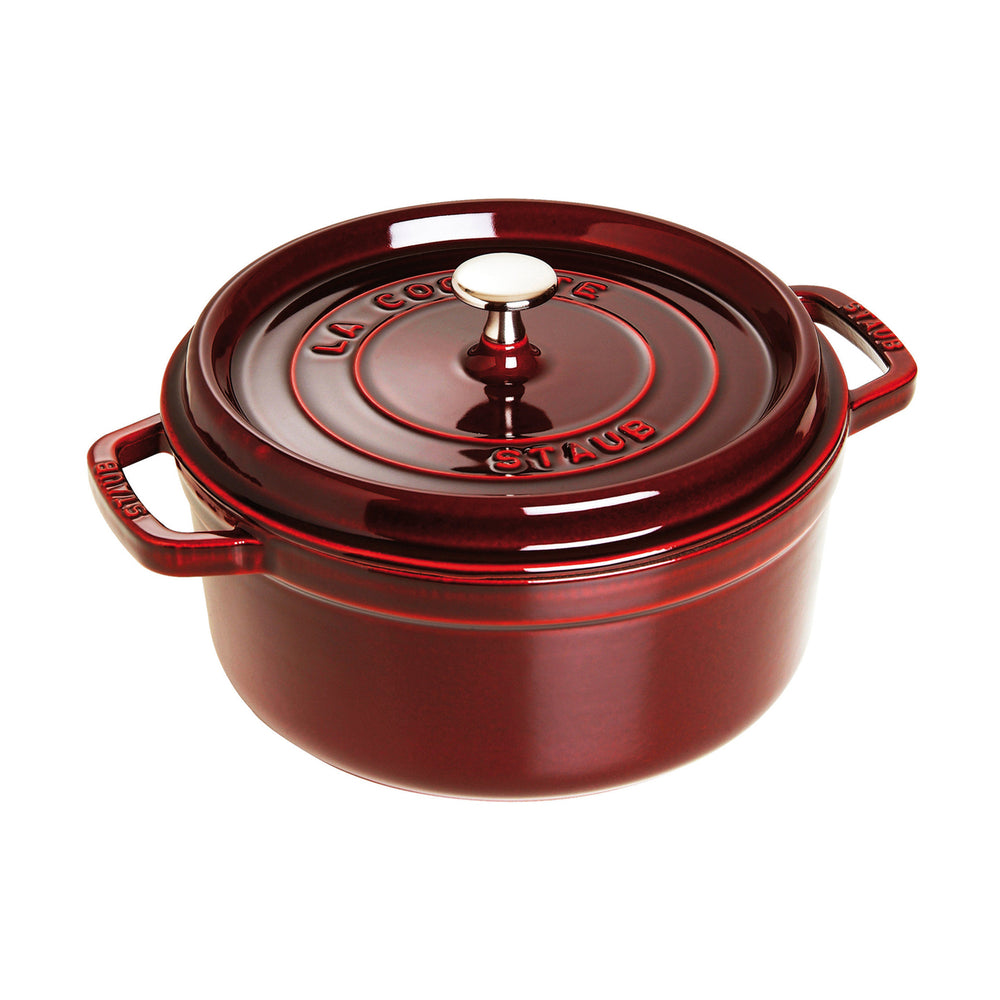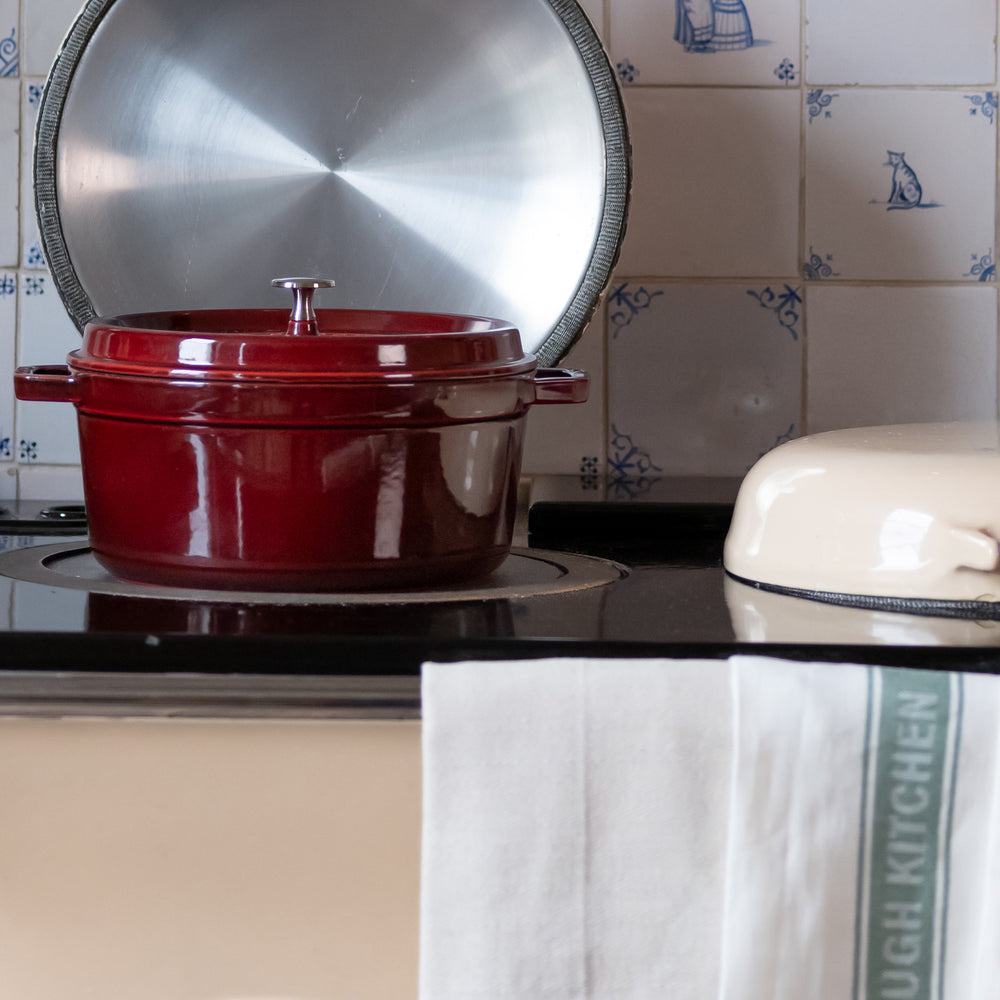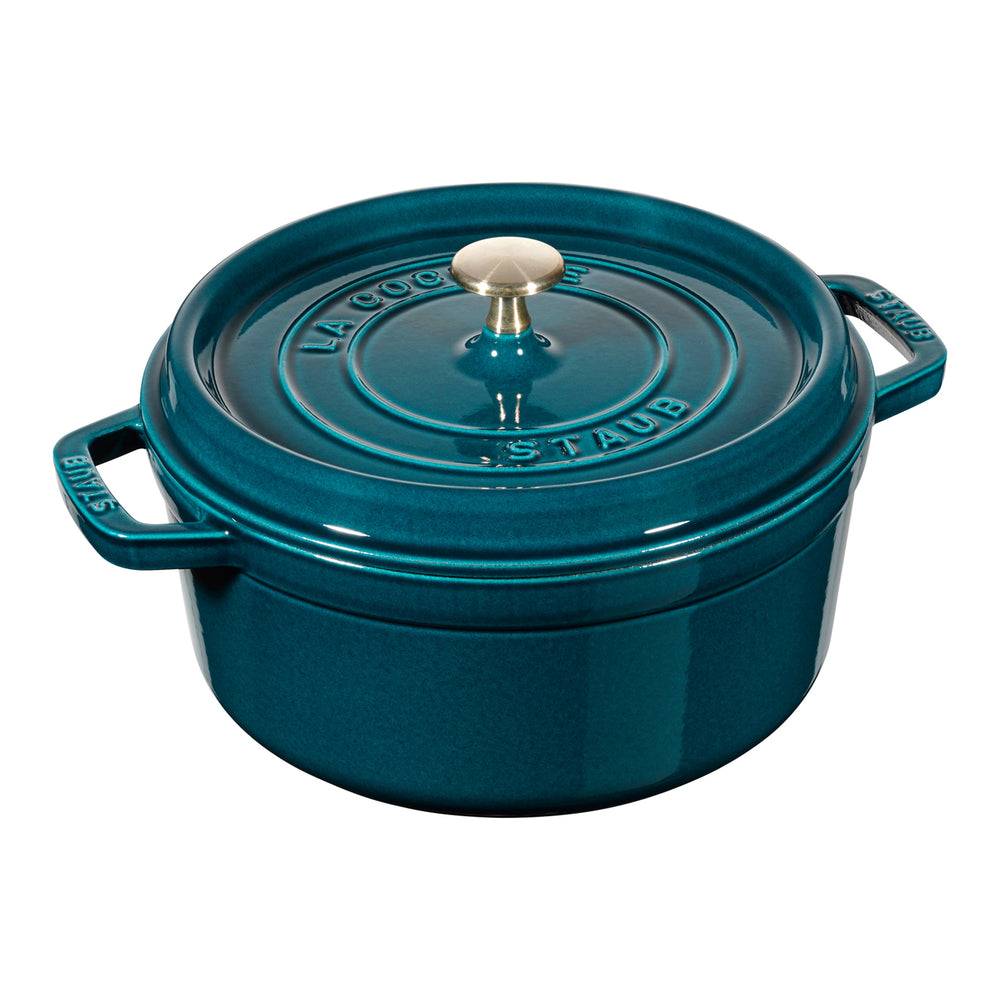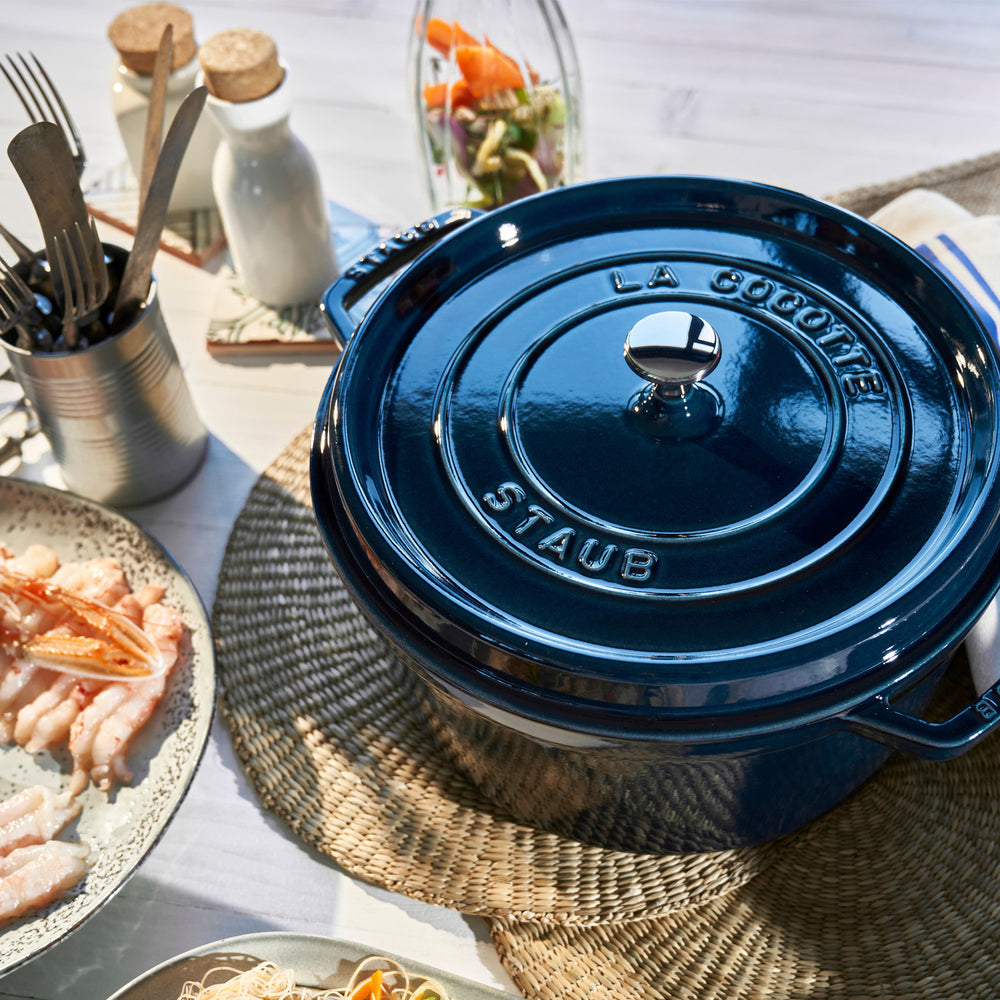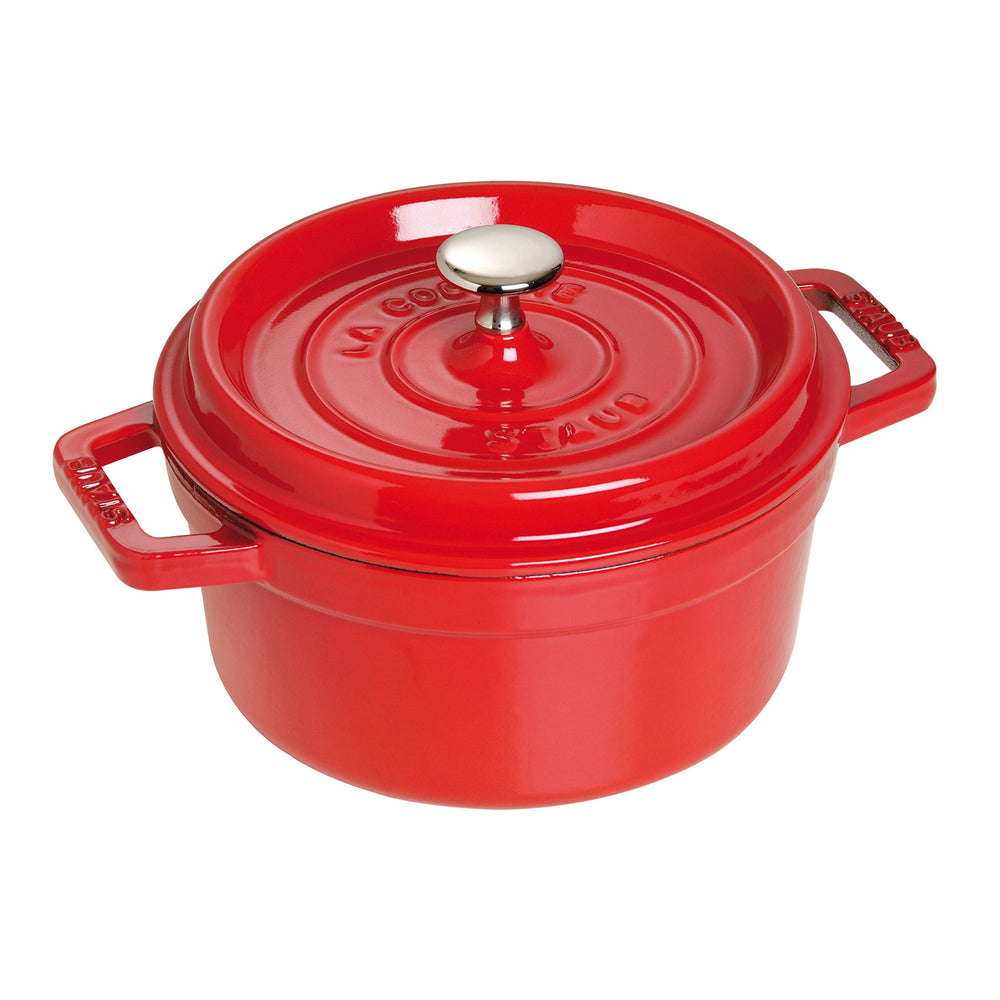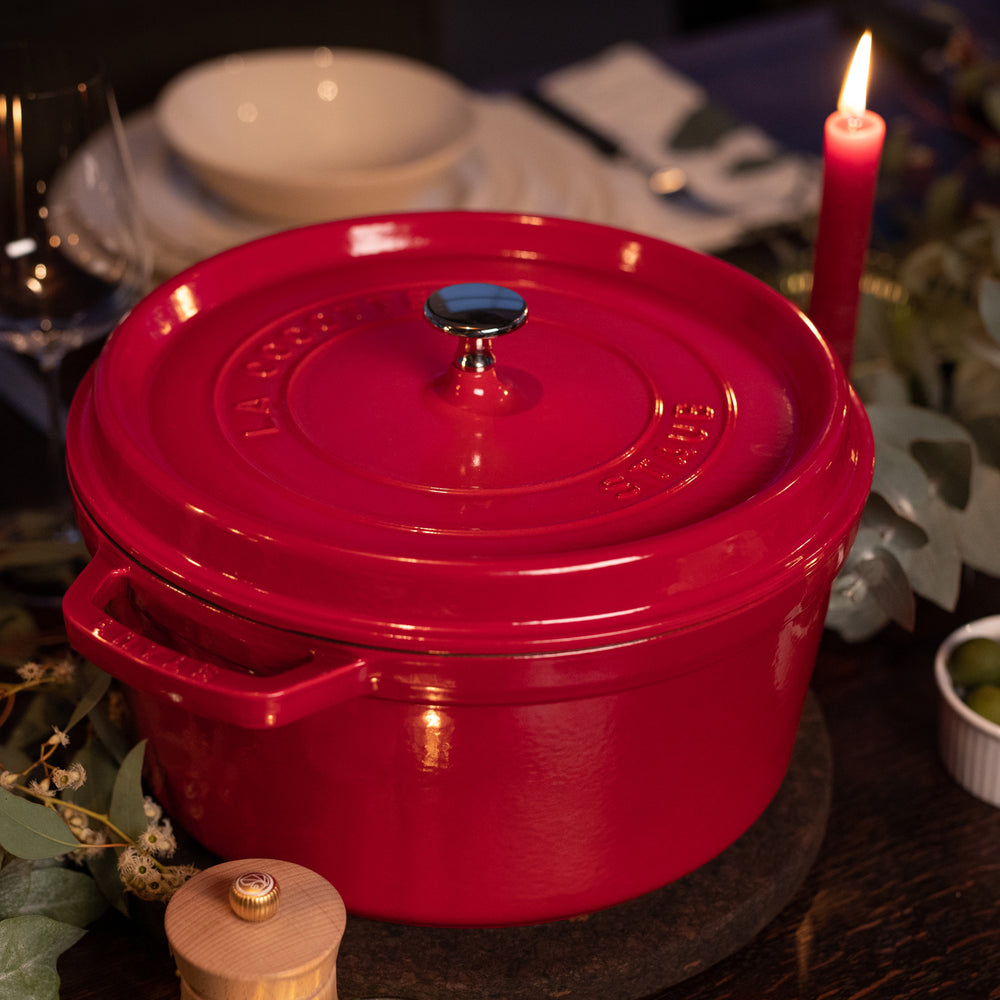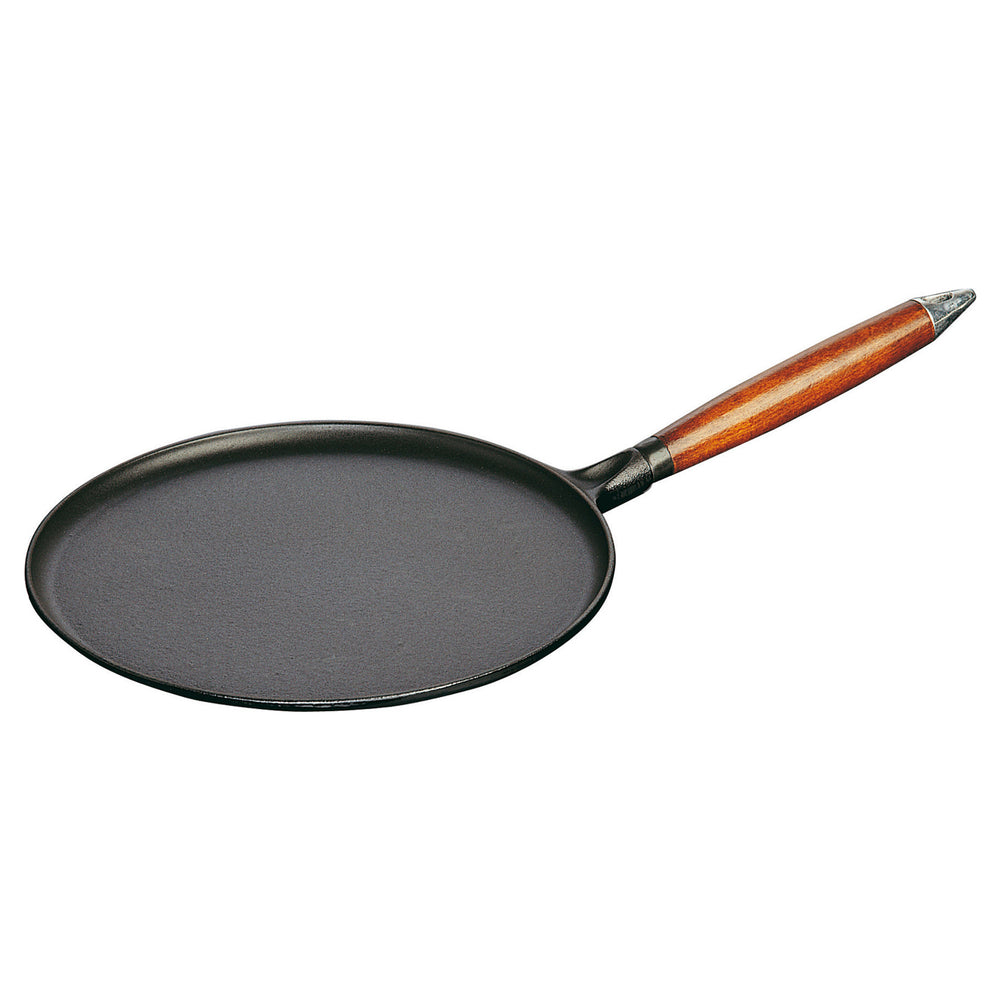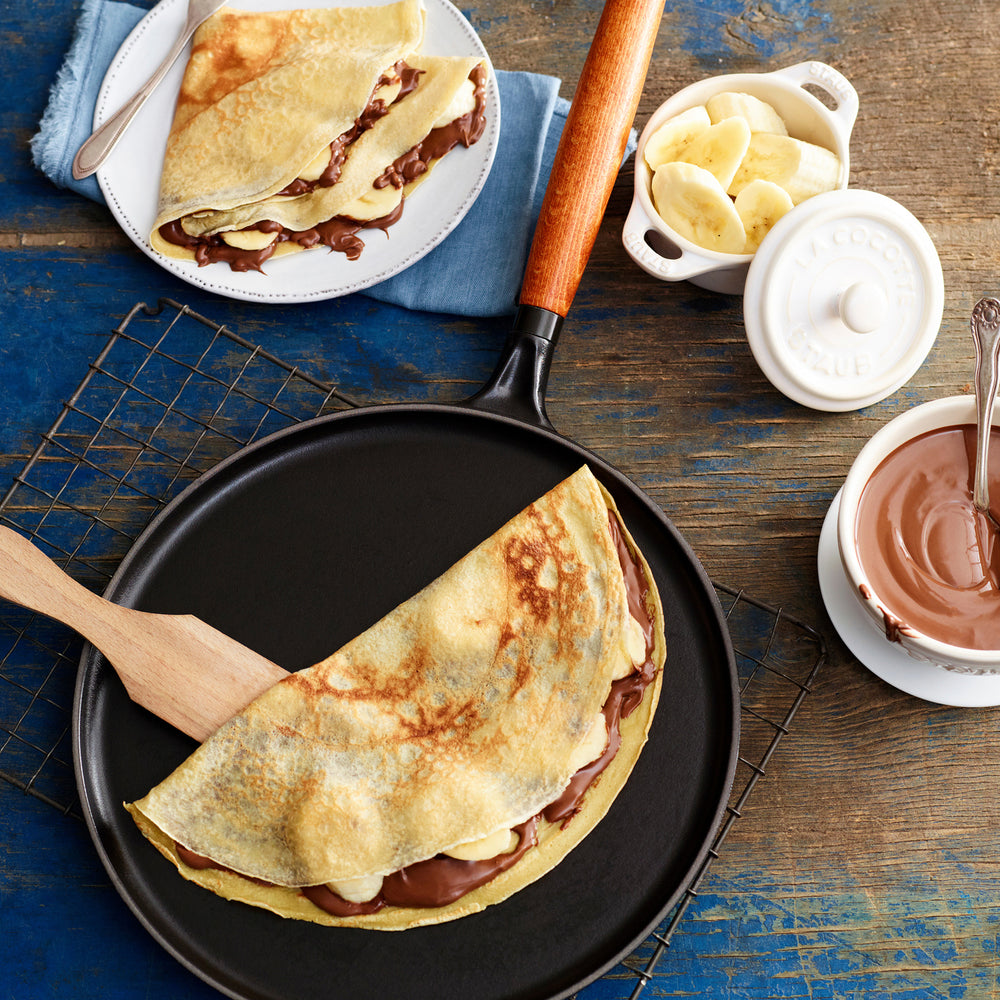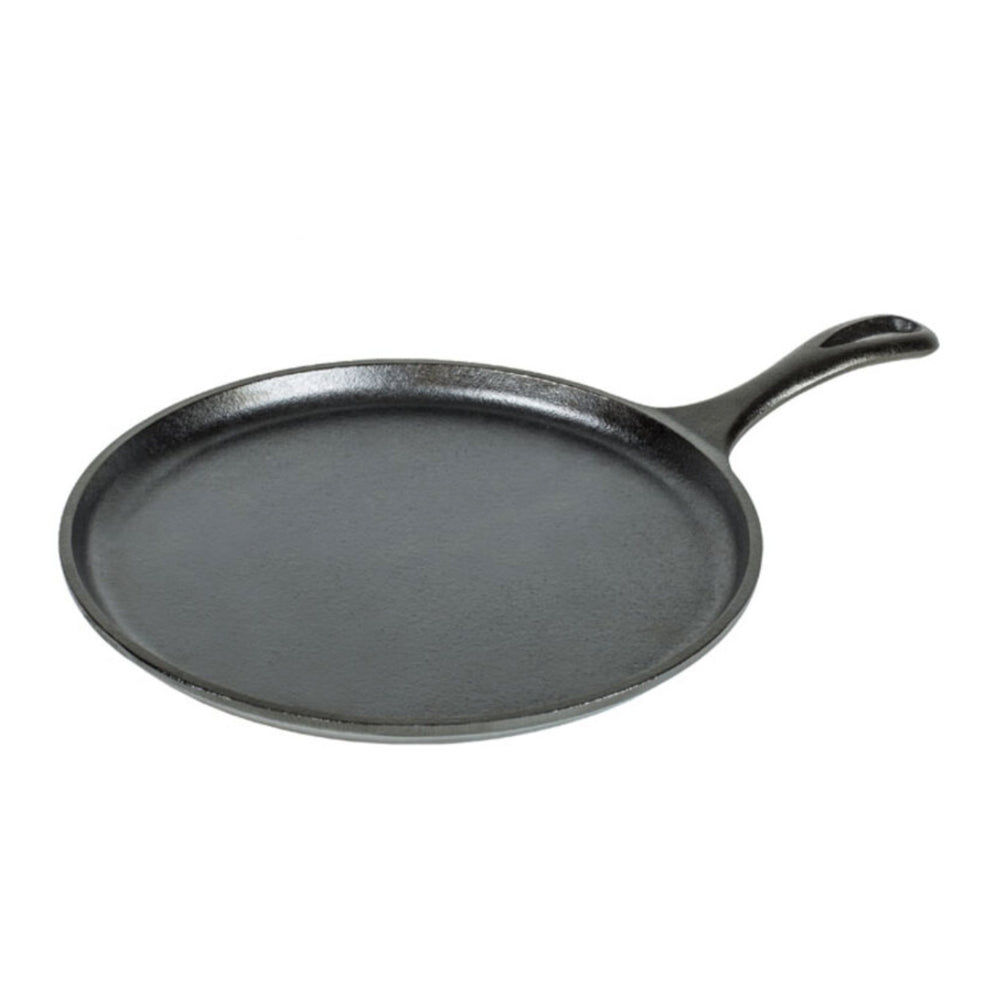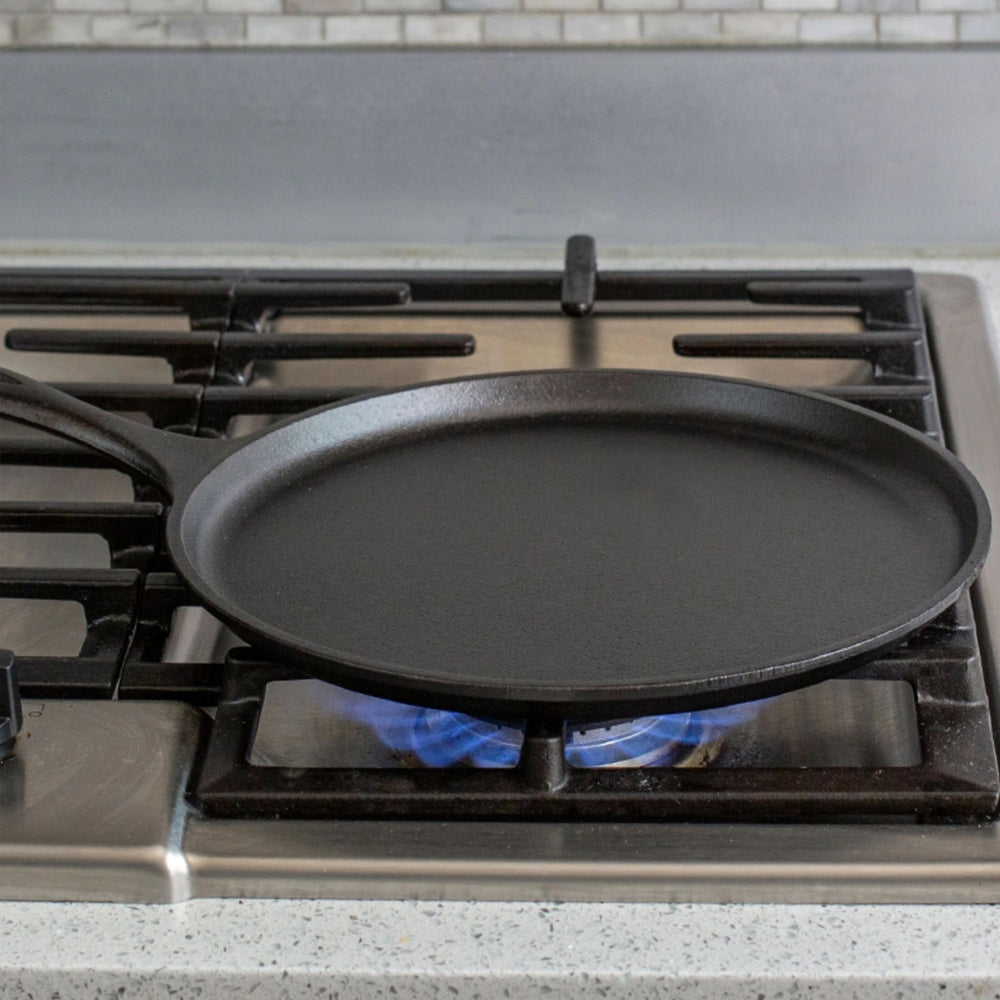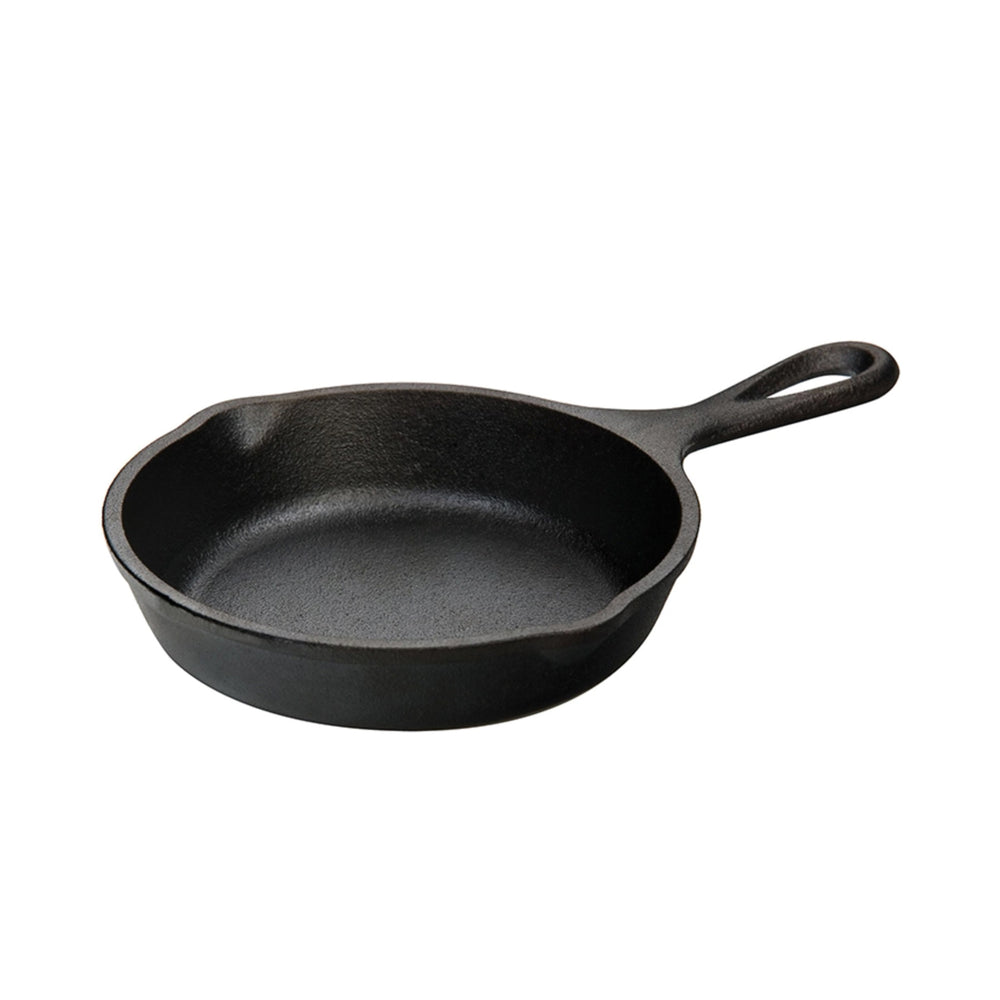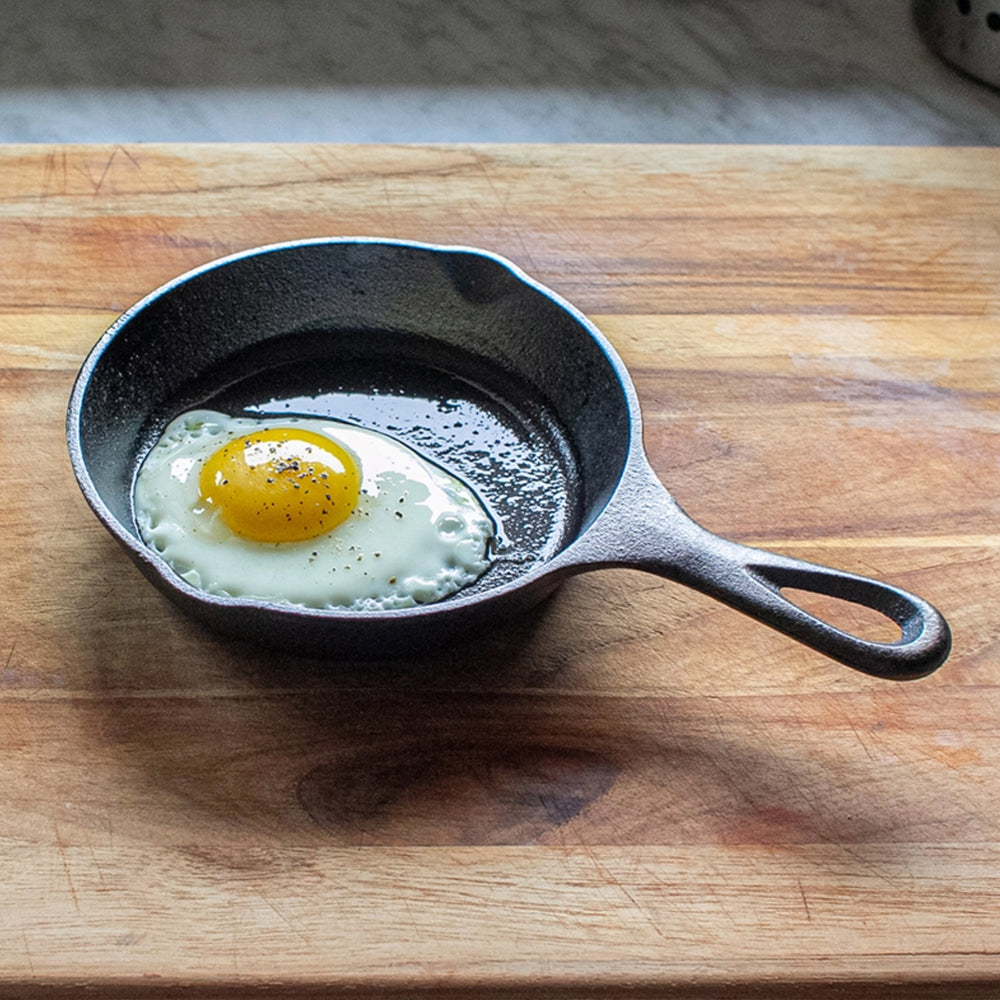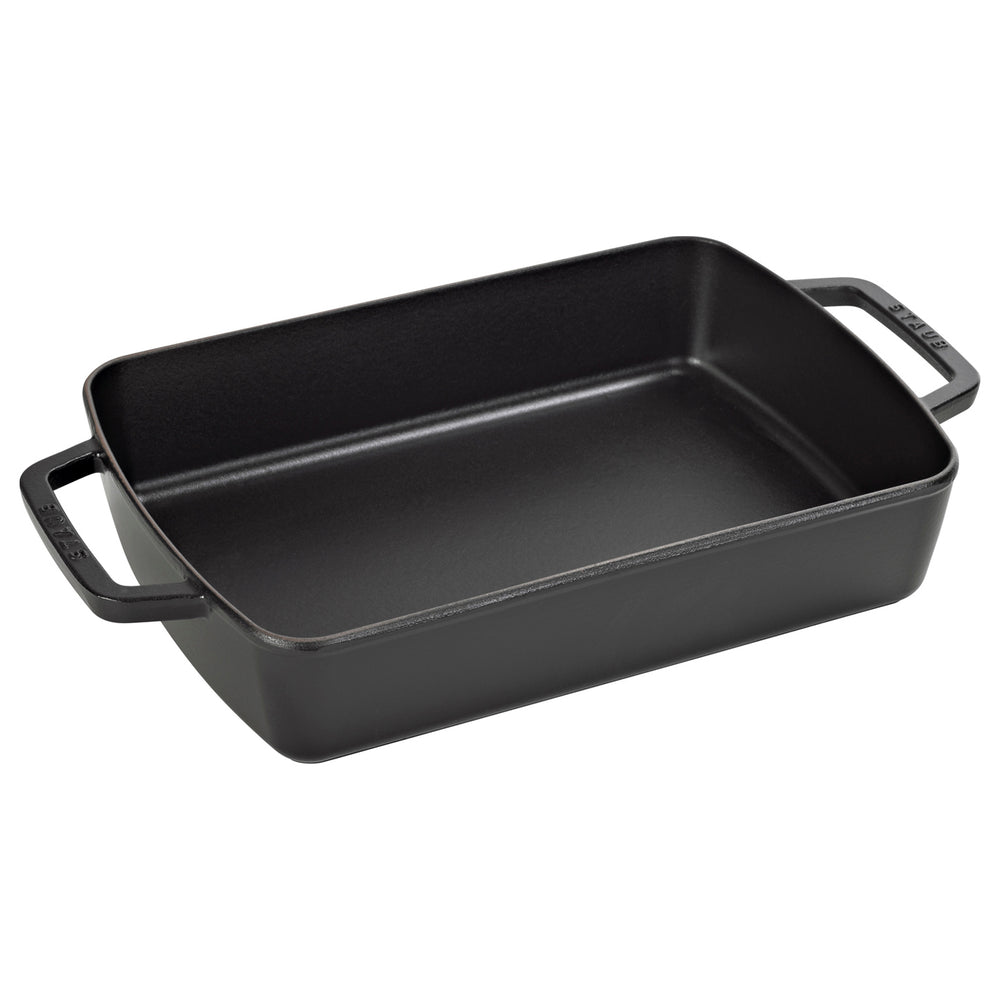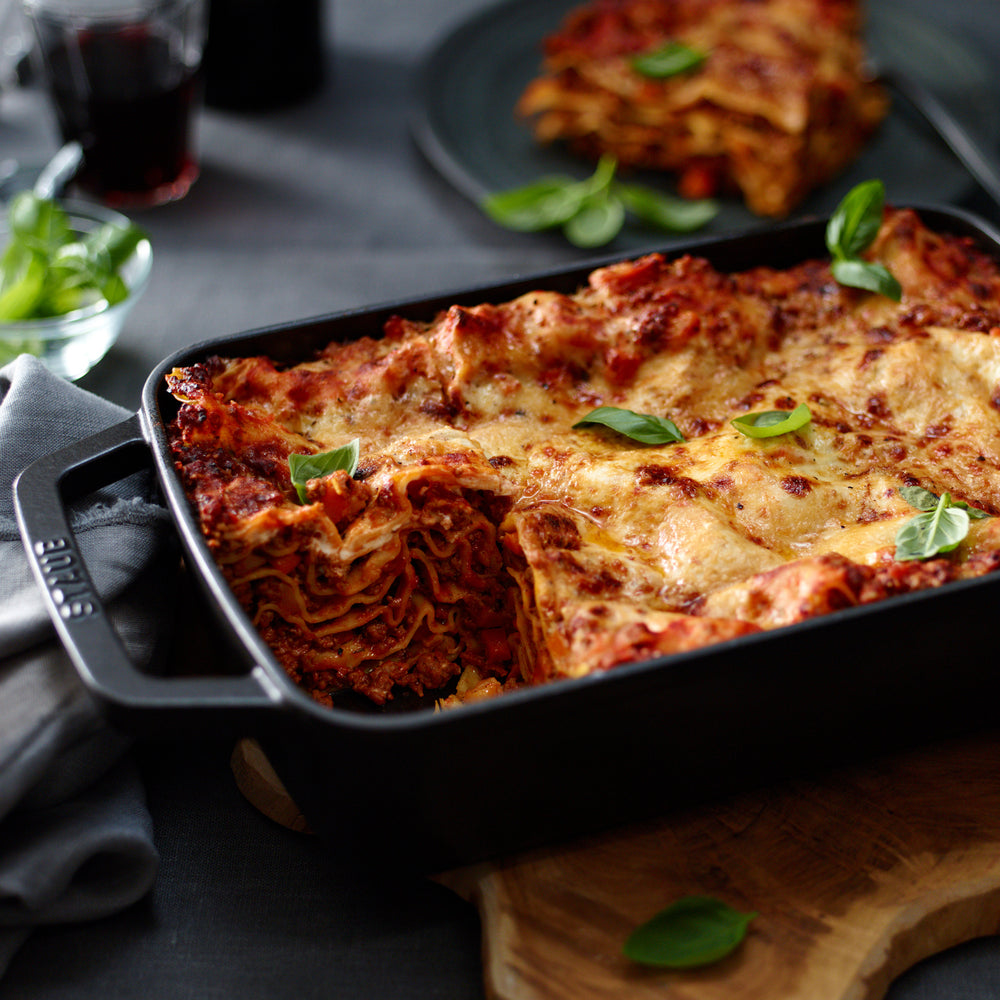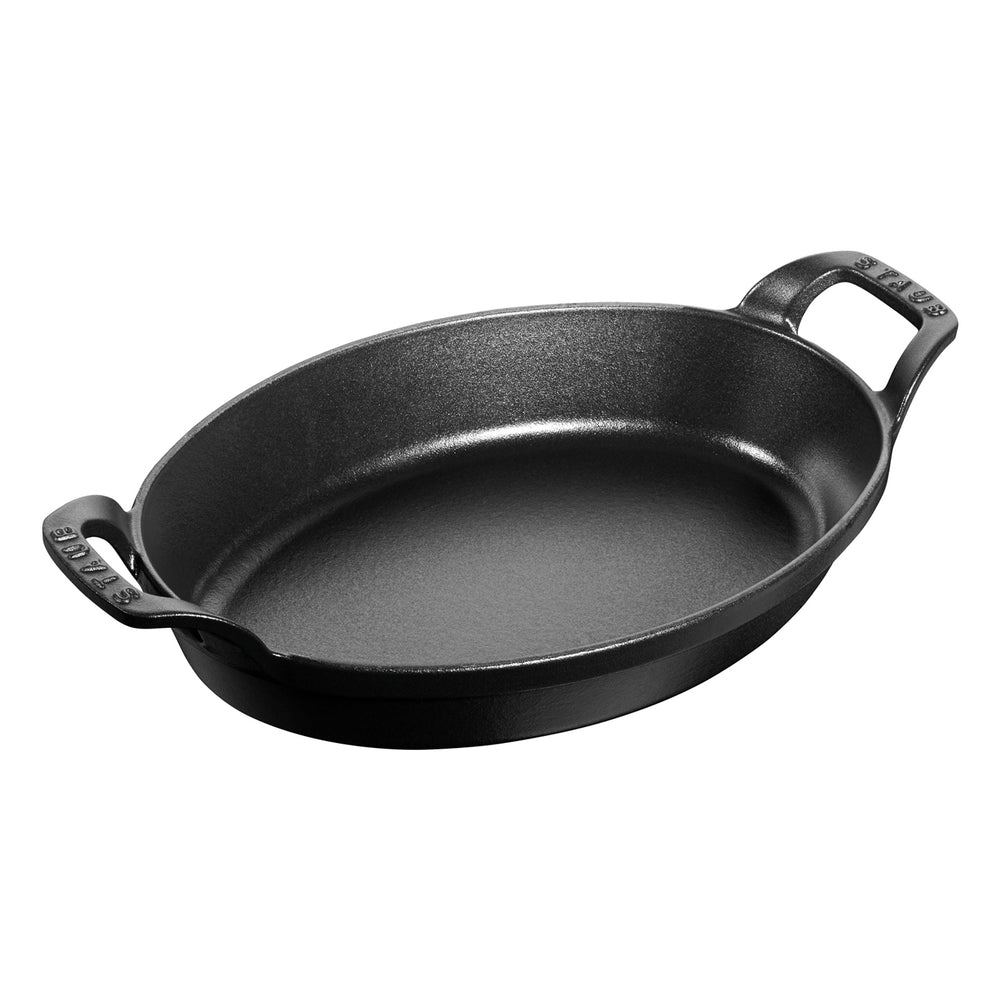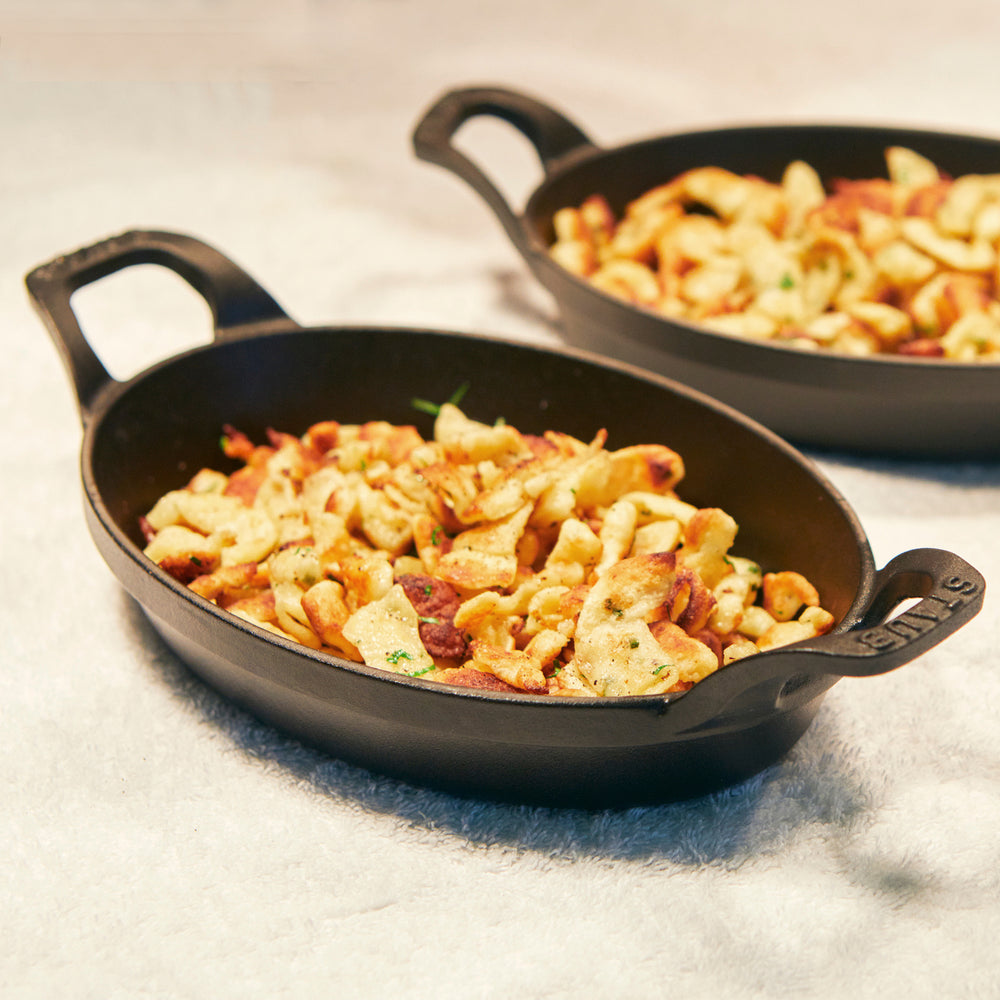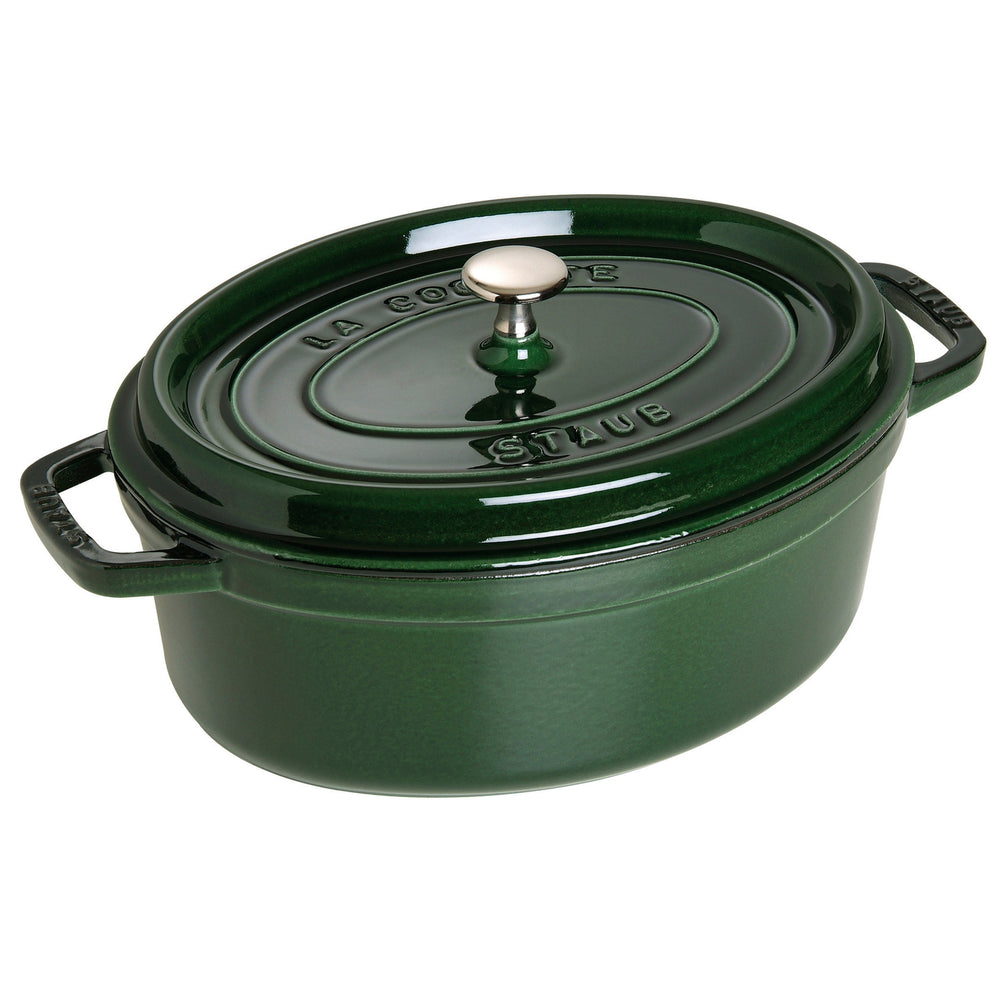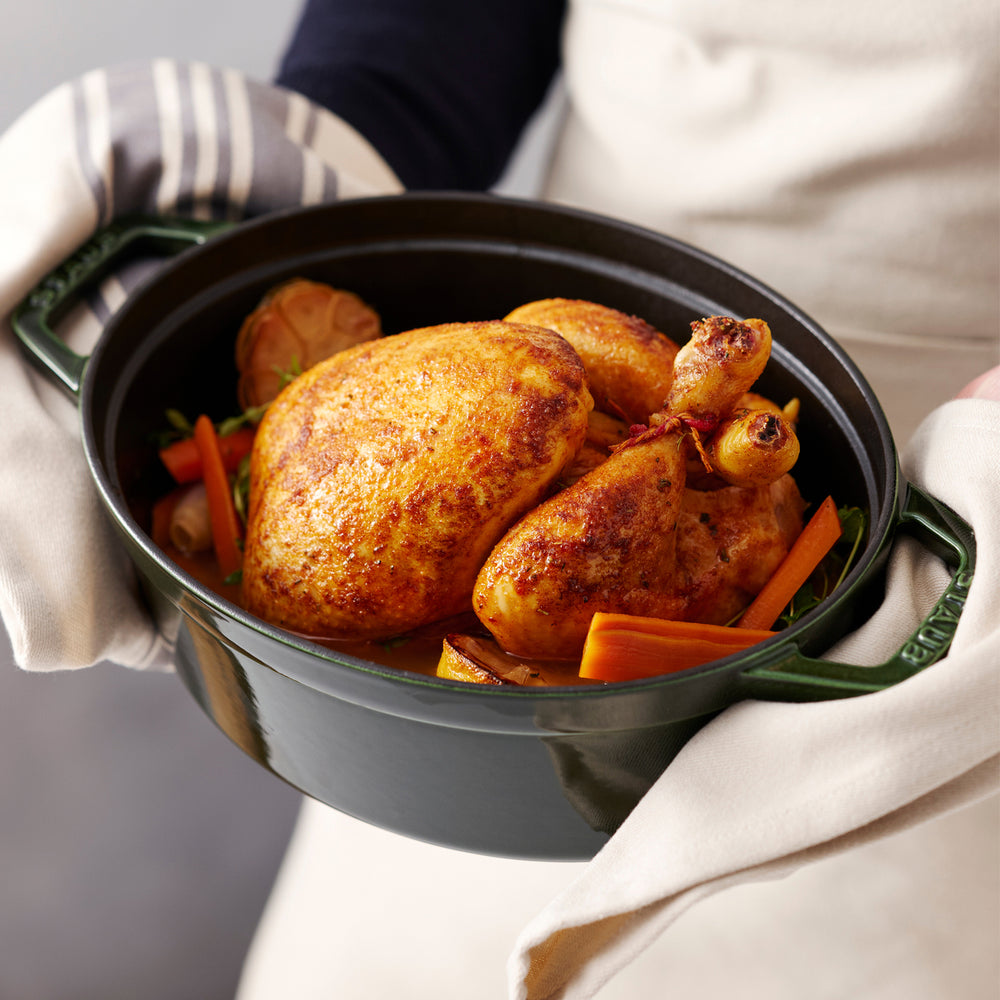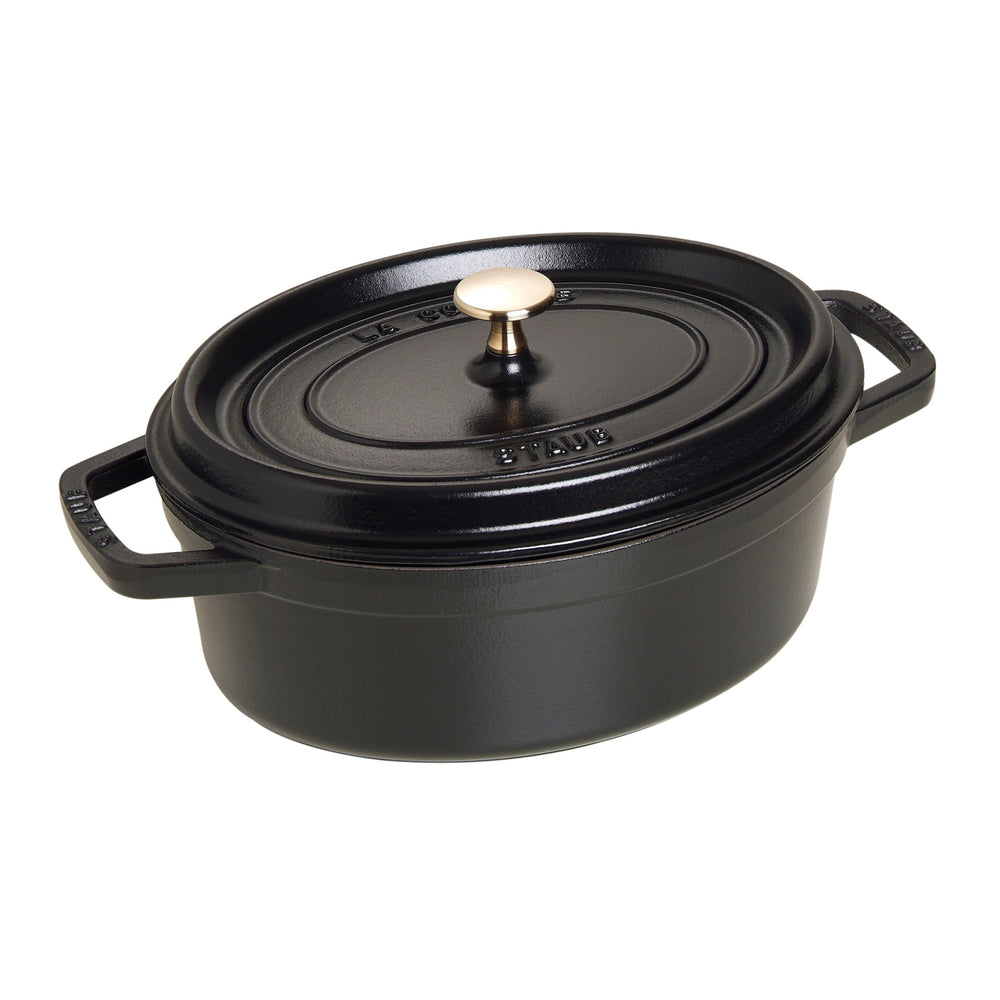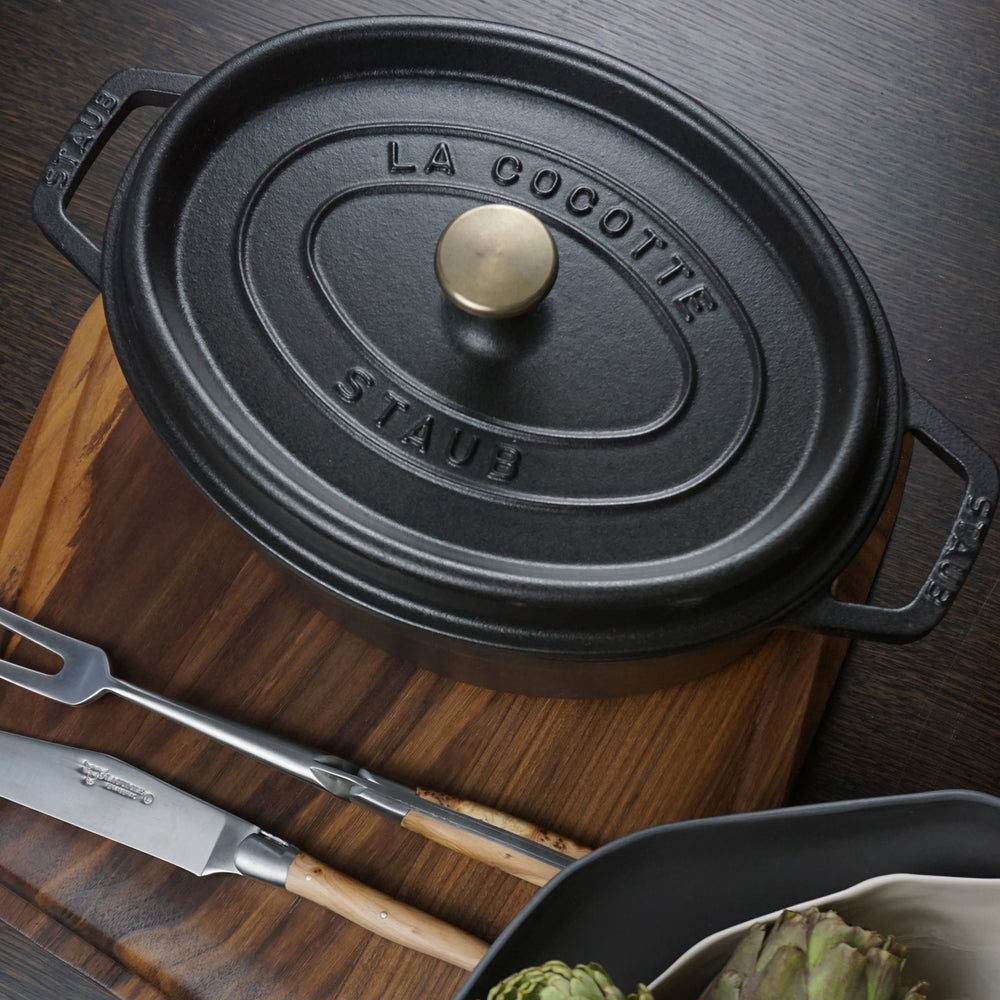Frequently Asked Questions
Are cast iron pans non-stick?
A raw cast iron pan will develop a non-stick surface over time. This is achieved by regular maintenance—wiping down the pan and coating it with oil after each use. The patina that will develop over time is a dark, glossy surface. Enamelled cast iron, however, does not become non-stick over time.
Are cast iron pans dishwasher safe?
No. This is due to the patina you are developing on your pan, which will ultimately improve and improve with time. The combination of detergent, scrubbing action and warm water in the dishwasher effectively removes the seasoning in the pan and this will result in the pan rusting. The recommended way to clean raw cast iron is by simply washing the pan with warm water and wiping it clean with a paper towel. Removal of baked-on residue is easy: Soak the pan in warm soapy water very briefly and dry thoroughly before rubbing in a coating of oil. For more ways to clean a raw cast iron pan, see our guide.
If your cast-iron has an enamel coating (such as the Staub, Invicta, or Crane cast ranges), then it is not suitable to use in a dishwasher as the enamel may eventually become degraded by the harsh detergents, impacting the life of your pan.
Can cast iron rust?
Raw cast iron will rust if left damp and exposed to oxygen. If you have a raw cast-iron pan (like a Lodge or Finex), it is important to ensure that the pan is dried thoroughly after use and applied with a thin protective layer of seasoning. This is best done by putting your wiped pan on the hob to ensure all the droplets of water have evaporated and applying the seasoning and putting away. Raw cast iron left damp and exposed to oxygen will rust.
Can cast iron be used on induction?
Yes, cast iron cookware is perfect for cooking on induction. However, it is important to note that the base of the pan should be absolutely flat without any raised ridges. One example of a cast-iron pan which will not work on induction is the Lodge Reversible Griddle.
How do cast iron pans work?
Cooking in a cast iron pan is exactly the same as in any other pan, with the added benefit of your pan being oven-safe and capable of retaining heat evenly. Cast iron as a material is a relatively poor heat conductor when compared to materials like aluminium and copper, but once hot, a cast iron pan contains more thermal energy than other pan materials at the same temperature. This makes it an excellent surface for searing due to the amount of thermal energy available. In short: Cast iron is slow to heat up and slow to cool down, so retains its temperature longer than other materials.
They are ideal for frittatas, tarte tatins, brownies, German pancakes and any other dish which you start on hob before moving into the oven. They work beautifully for roasting, searing and baking, and are generally considered amongst the most versatile and long-lasting options when considering which pans to buy. They also work on all stovetops including induction (unless their base is not completely flat; see details above). Cast iron pans can also be used to great effect on your barbecue.
Should cast iron smoke when seasoning?
Yes, although you shouldn’t be using so much oil that it is billowing smoke. A very thin layer of oil is sufficient; some people advise using so little that you can barely tell that it’s there. We would suggest putting a drop of oil in your pan, before wiping it around with a piece of kitchen roll. Your pan shouldn’t be shiny and be dripping with oil; use as little as you can while ensuring the entirety of the pan surface is covered. All our raw cast iron pans come pre-seasoned, so you would simply be re-seasoning periodically.
Should cast iron smoke when cooking?
Yes, this will happen when the pan with oil is heated above the burning point of the oil. There is no reason to have the heat up to high as cast iron distributes heat very well and retains the heat. Medium heat is sufficient. Do not use low smoke point oils in your pan such as olive oil, as this will cause smoking.
Should cast iron be sticky after seasoning?
No. When you season a cast iron pan, what you are doing is encouraging oil to polymerize on the surface of your pan. It is this that protects your pan from rust and gives you an easy-release surface over time. If your pan is sticky following seasoning, this is a sign that the polymerization process isn’t complete. This can be for a variety of reasons, the most common being that you have used too much oil, you haven’t given your pan long enough in the oven, or your oven wasn’t sufficiently hot to get the oil above its smoke point. We would recommend that you thoroughly wash your pan, strip it back to raw cast iron and begin the seasoning process again.
Is cast iron the best cookware?
Cast-iron pans are the most durable, versatile pans on the market providing they’re properly cared for. A properly maintained and seasoned cast-iron can last for generations and can withstand temperatures far beyond some alternatives. Cast-iron does not heat up as quickly as the likes of copper or aluminium, but heats up evenly and retains heat beautifully. It has been a firm favourite for centuries, and with good reason.
What cast iron pan should I buy?
This depends on whether or not you want to season and maintain your pan, or whether you’d prefer an enamelled pan which does not require seasoning and can be washed with warm soapy water. If you’d like traditional seasoned cast iron, Finex is the superior option, with Lodge providing an excellent budget alternative. If you’d like enamelled cast-iron, Staub, Invicta, or Crane provide beautiful, versatile and long-lasting options.
When should I re-season my pan?
Contrary to common belief, you don’t have to re-season your pan too often. Assuming that the pan has been properly seasoned in the first place and you’re not stripping all the oil off every time you use it, you will only have to re-season your pan occasionally. When you start to notice the sheen on the surface is wearing away through use, it’s time to re-season your pan. This is normal, and to be expected. It does not mean that your pan is damaged, or that you have to throw it away.
Will cast iron break?
Cast-iron is extremely hard-wearing, and assuming you care for it properly it can last for decades. It is not, however, completely indestructible. Cast-iron is extremely strong, but it will break before it will bend. If you drop it from a great height, you risk damaging your pan. As with all pans, try to avoid rapid changes in temperature; don’t plunge a hot pan directly into cold water. This is because doing so risks what’s known as thermal-shock, which can cause your pan to crack. It is important to note however that this is extremely unusual, and only as a result of misuse.
Is it true you can never use soap on seasoned cast-iron?
This is a point of contention, but once you understand the science behind seasoning, you’ll see that it is a myth. When you season your pans, you are encouraging oil to polymerize on the surface. This will not be immediately destroyed by the use of a little washing up liquid, although heavy detergent use is not advised.
Can you soak seasoned cast iron pans?
No. You should not soak your cast iron, nor should you allow it to sit damp following washing up. Some people even advise putting your clean pan back on the hob to evaporate off any moisture, as moisture is the number one culprit when it comes to rusted pans. If your pan has baked-on residue, you can soak it very briefly in warm soapy water.
Are there foods that I shouldn't cook in Cast Iron?
Some foods are not well suited for cooking in a raw cast iron pan. Foods which are very acidic (i.e. baked beans, tomatoes, citrus juices, etc.) should not be cooked in Seasoned Cast Iron until the cookware is highly seasoned. This is due to the acidity of these foods, which will strip the seasoning and result in discolouration and metallic tasting food. The acid loosens trace amounts of molecules from the metal that can then leach into your foods, imparting a metallic flavour. While perfectly safe to consume, these metal flavours can be unpleasant. Wait until cast iron is better seasoned to cook these types of foods.
Cast-iron skillets are beloved for their ability to retain heat—all the better for getting that perfect browned crust on a steak. But this same asset is a liability when it comes to more delicate meats that won't stand up to heat as well. Flaky white fish like flounder or tilapia are at risk of falling apart and not flipping well when cooked in cast iron.
